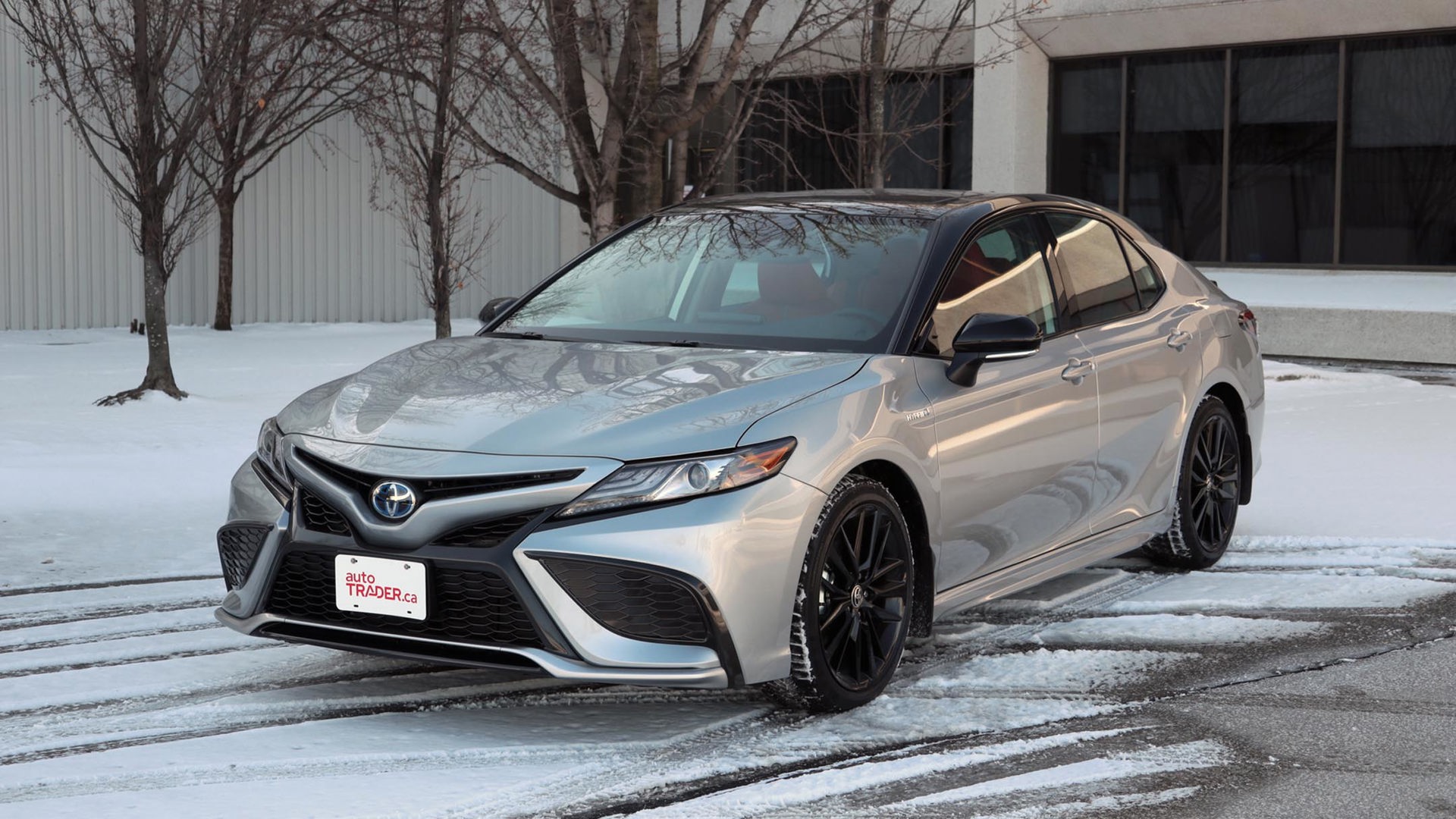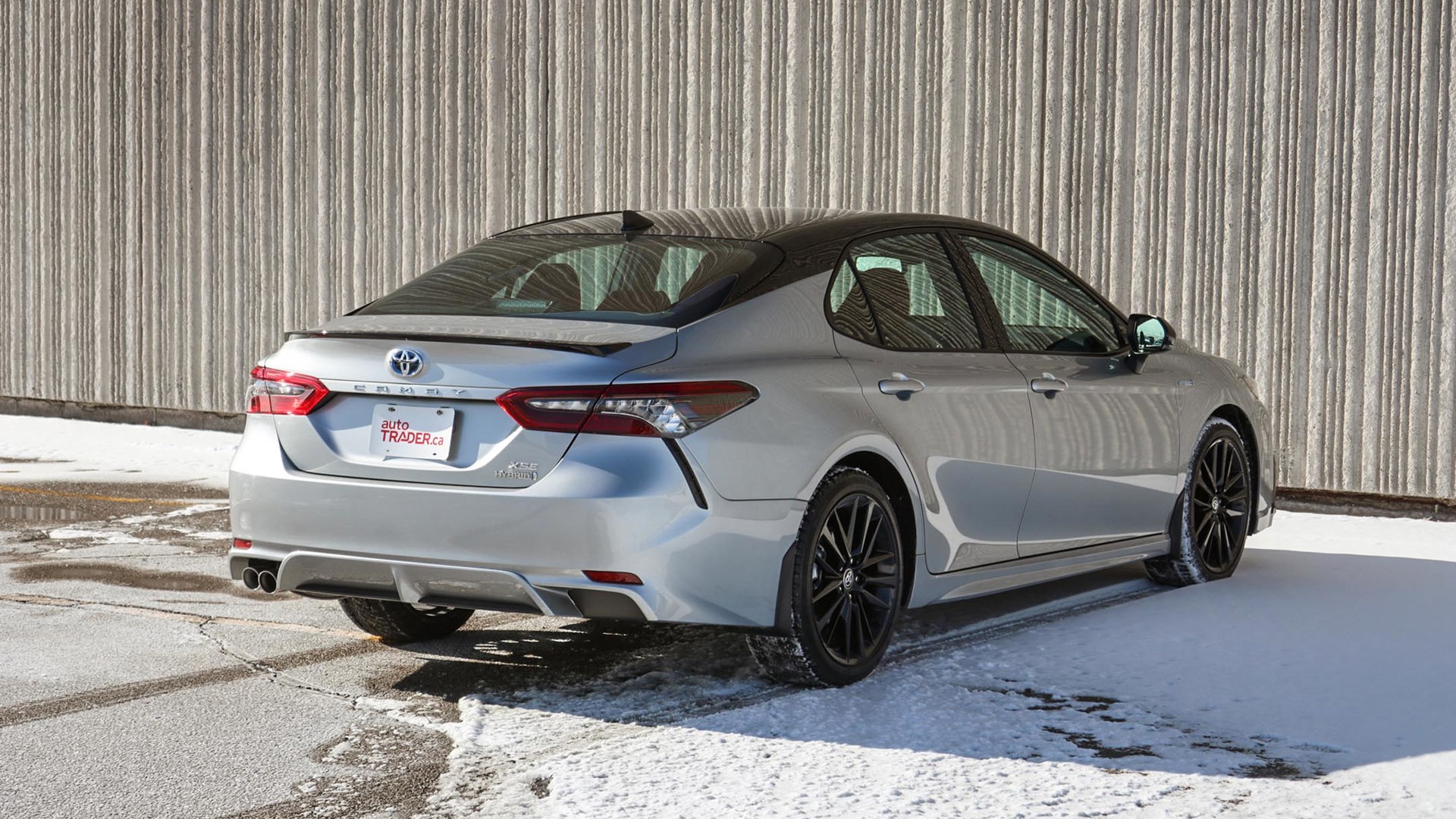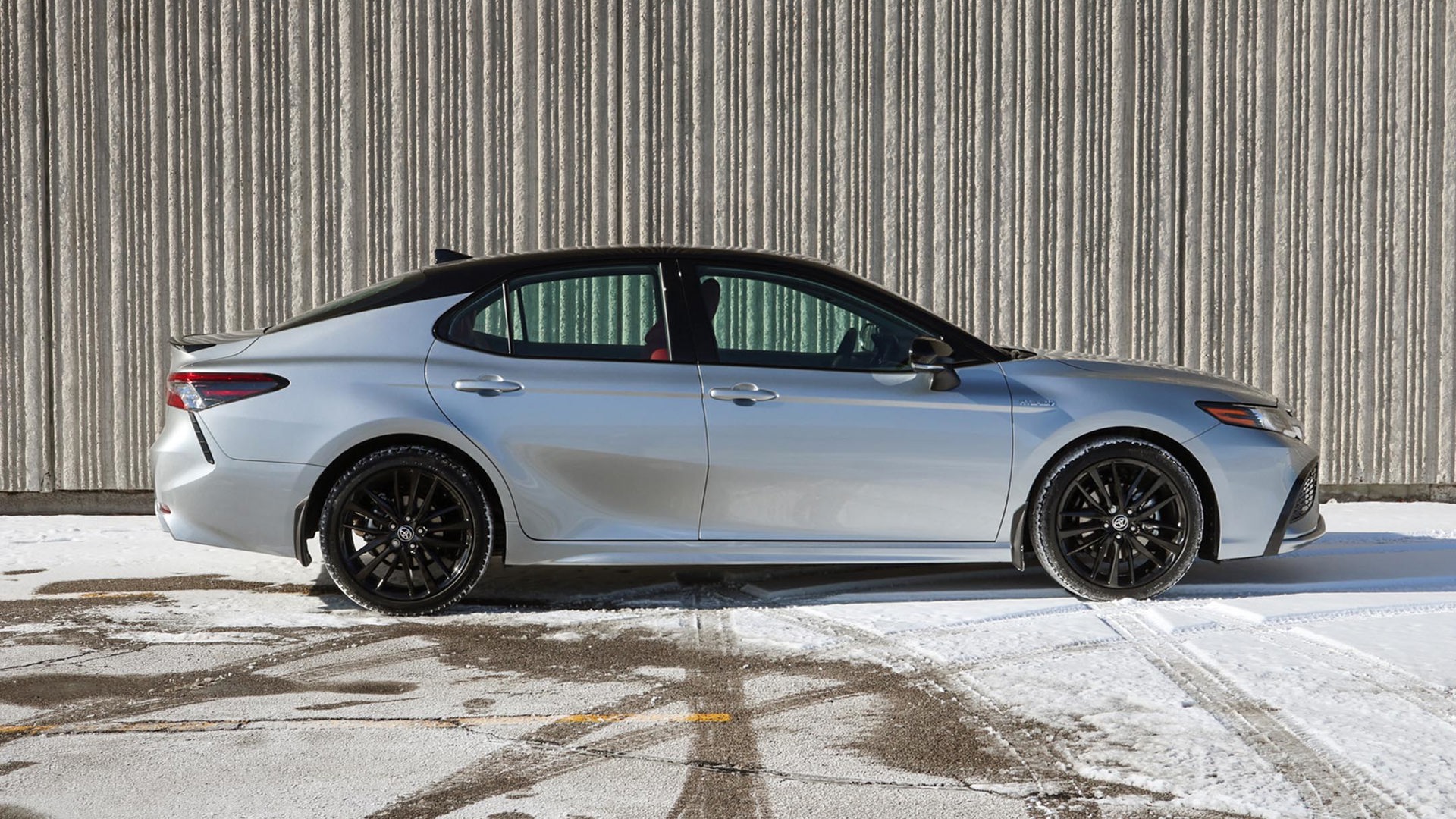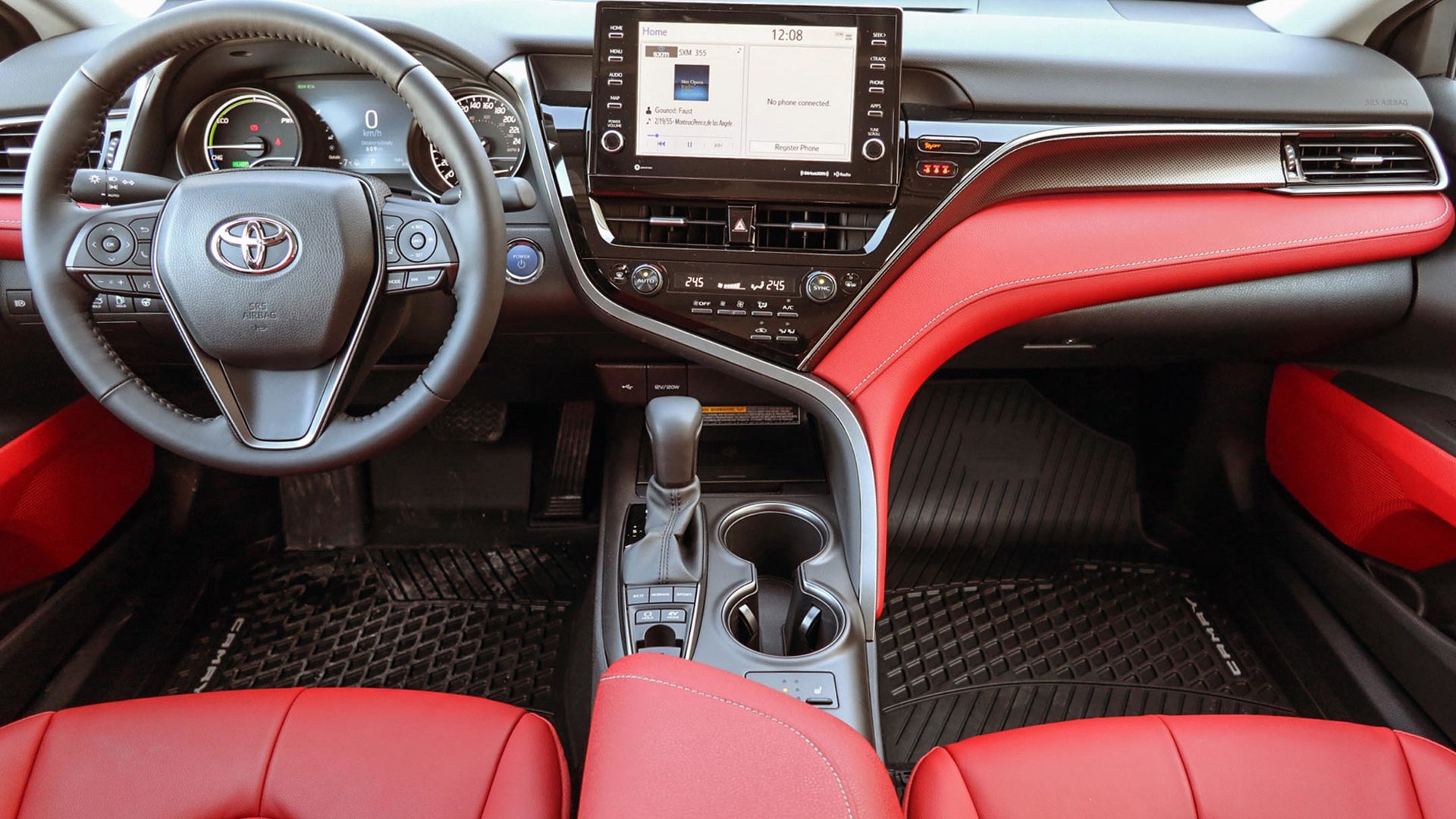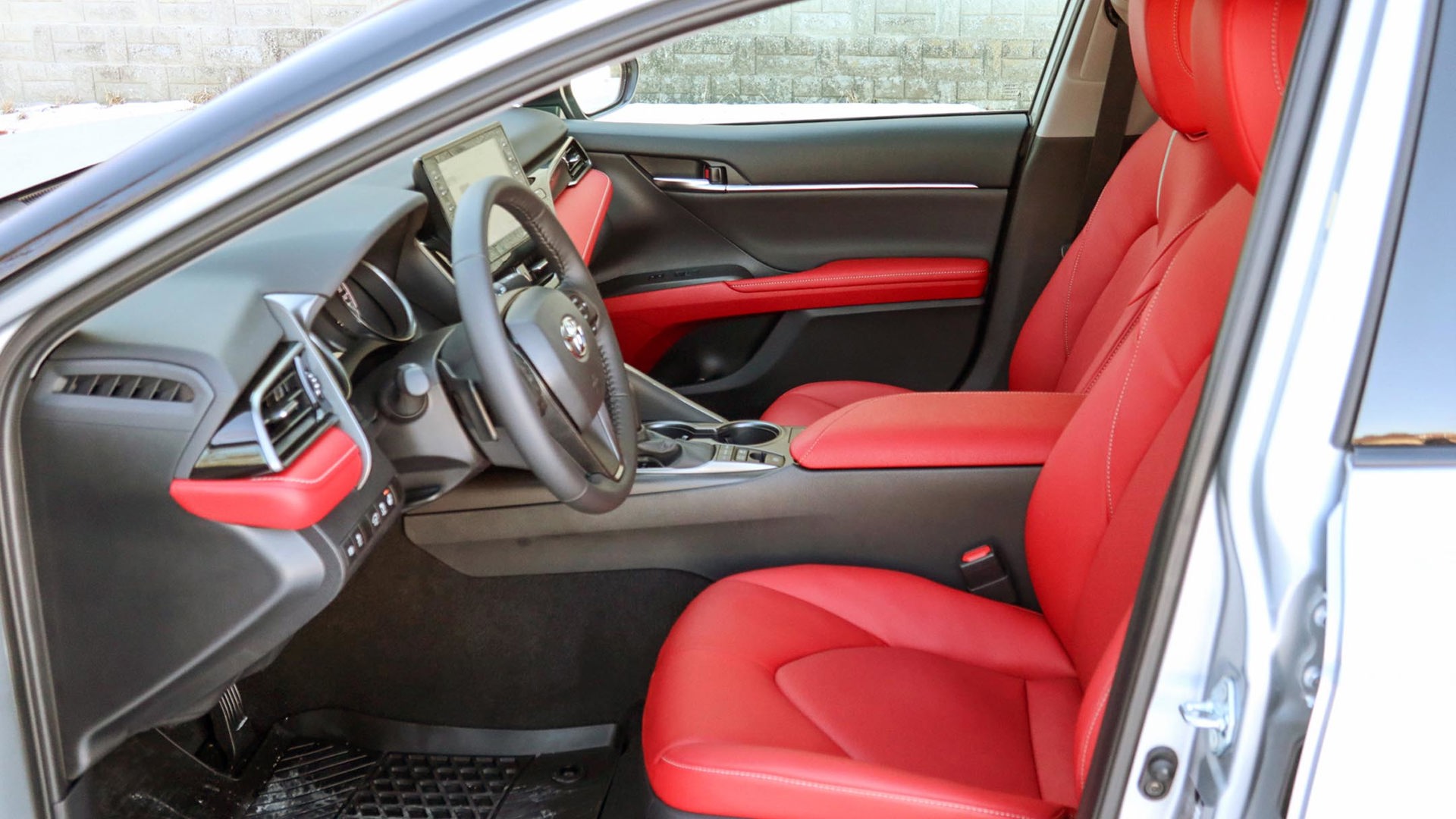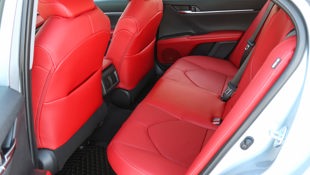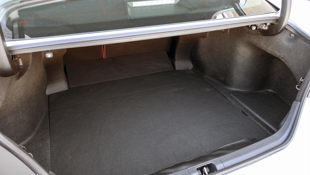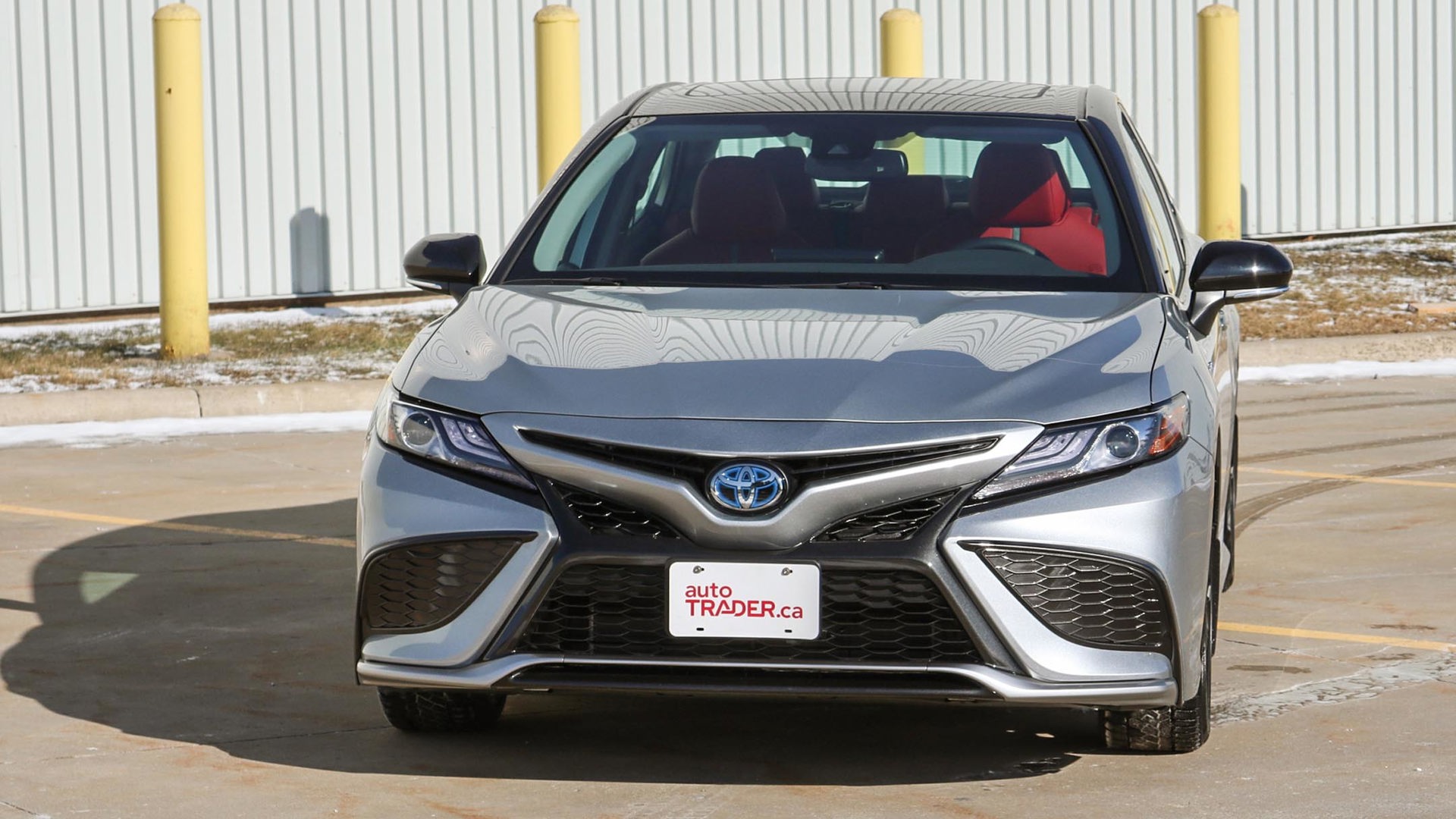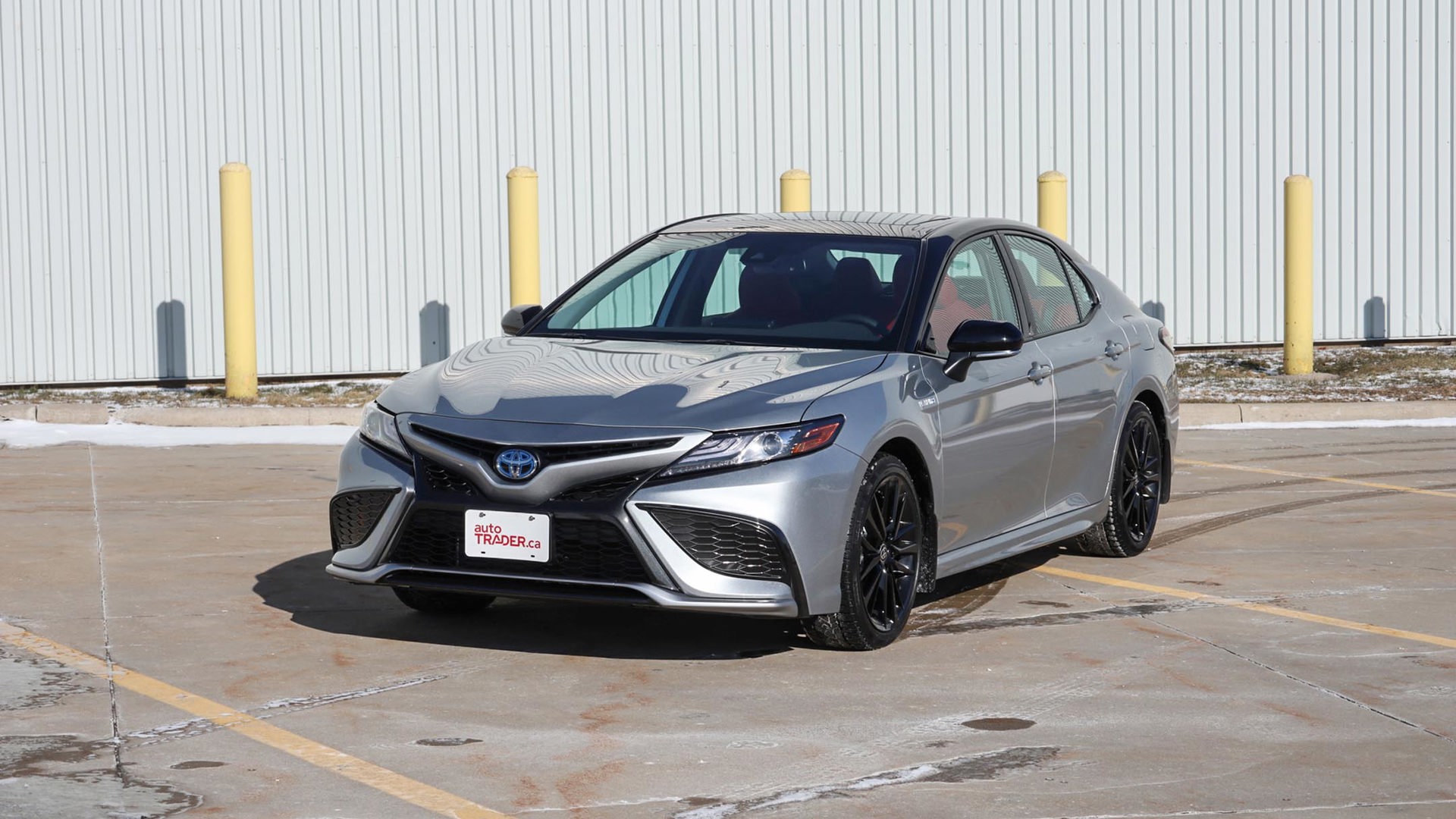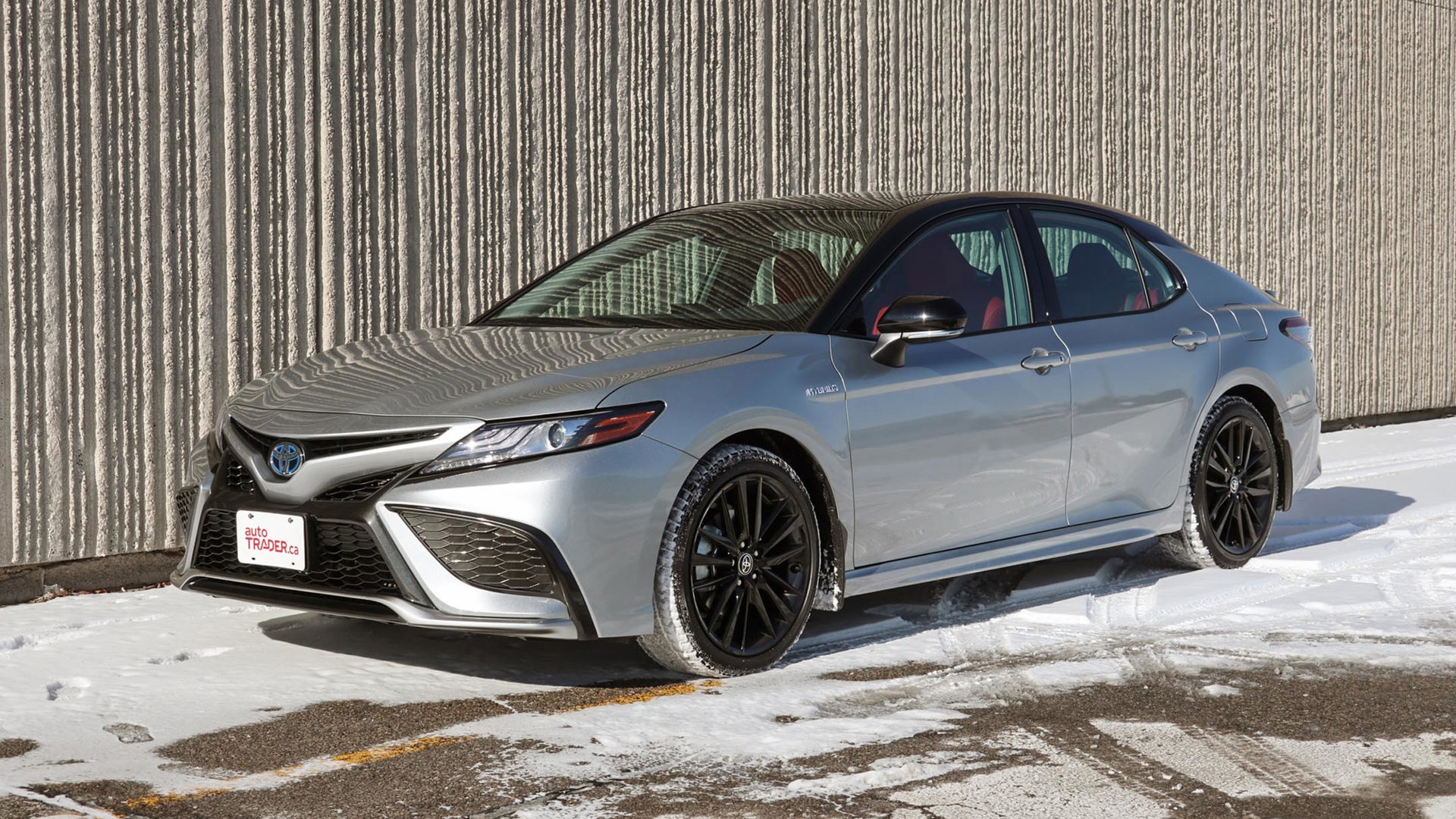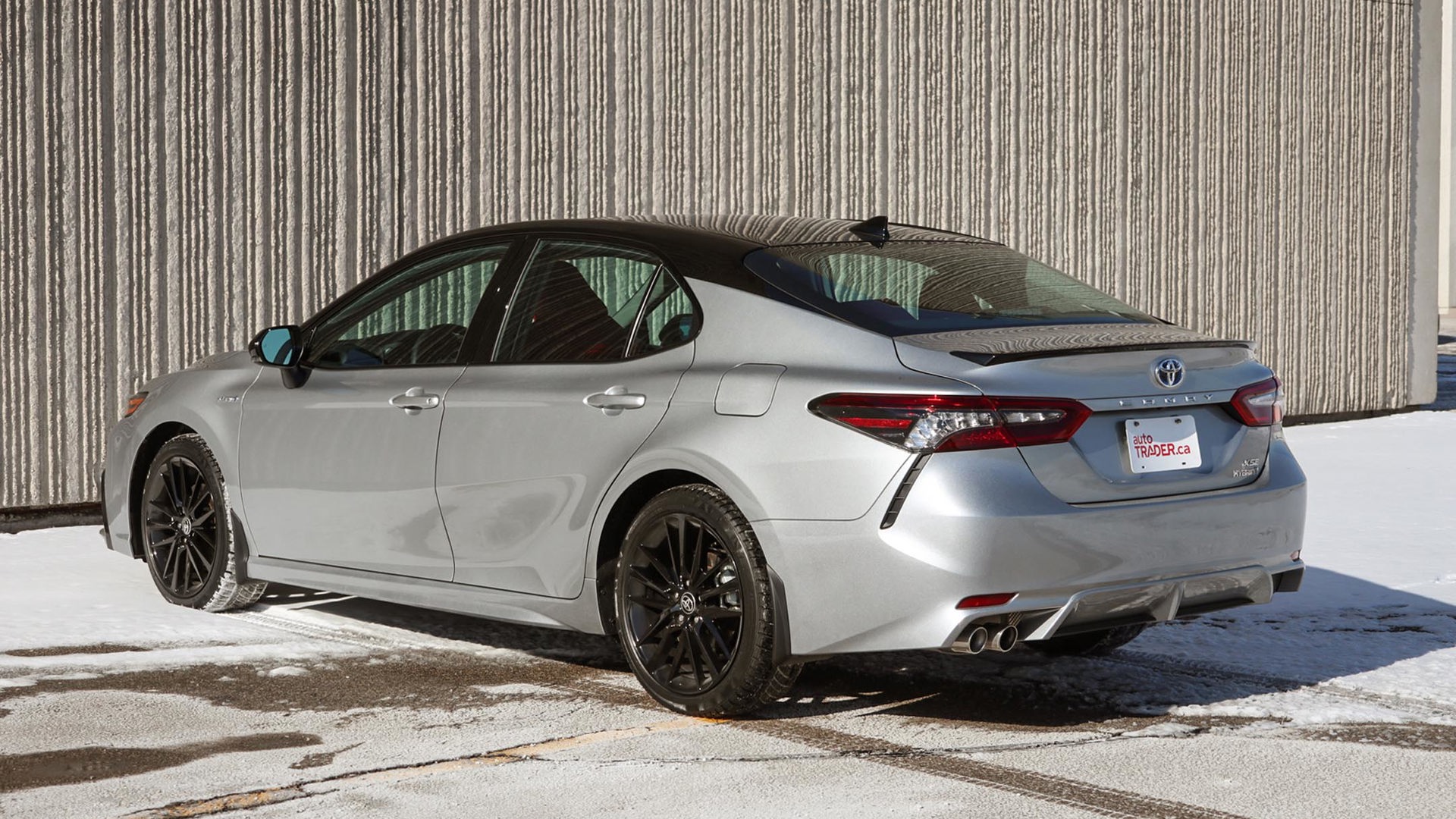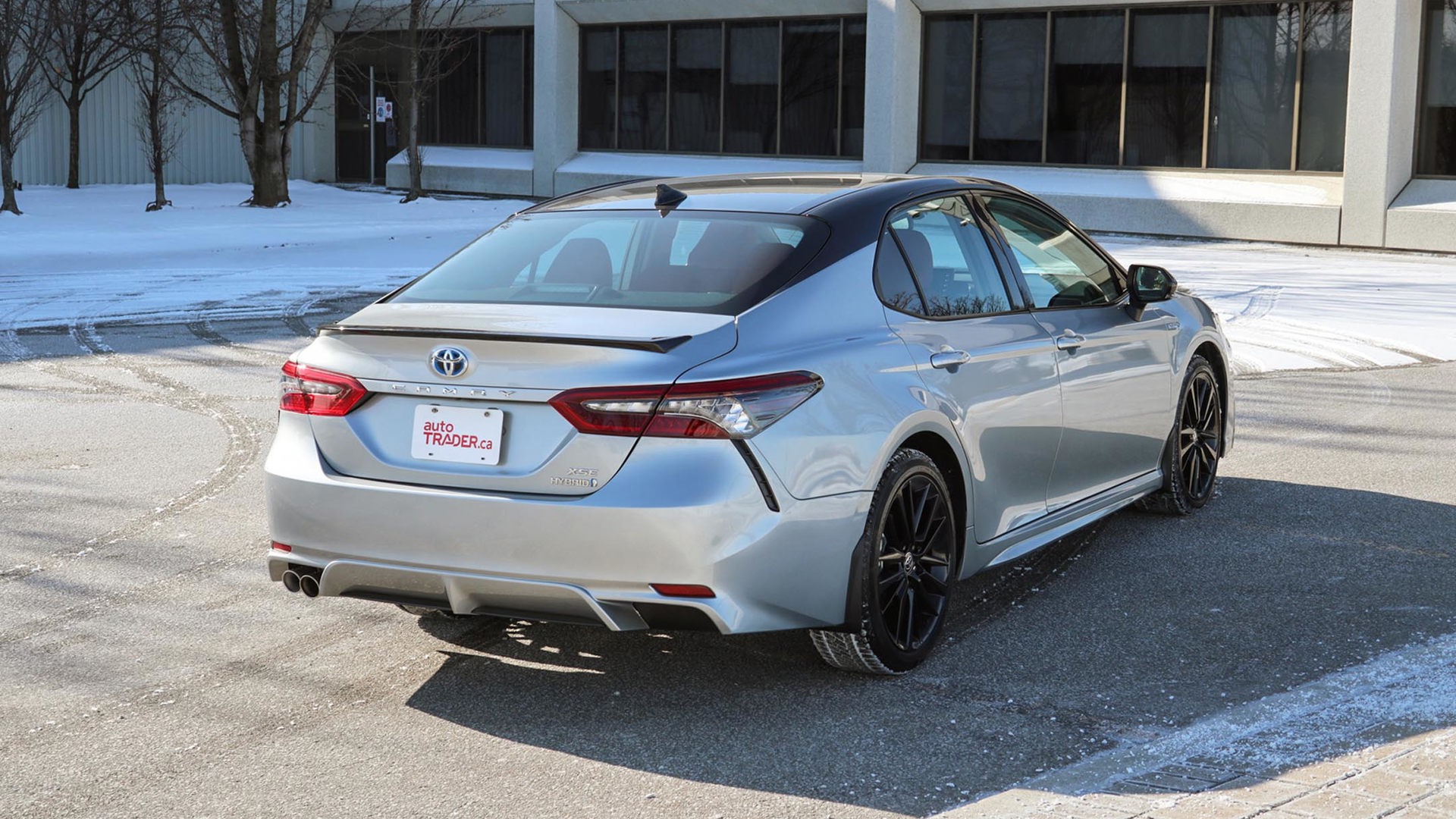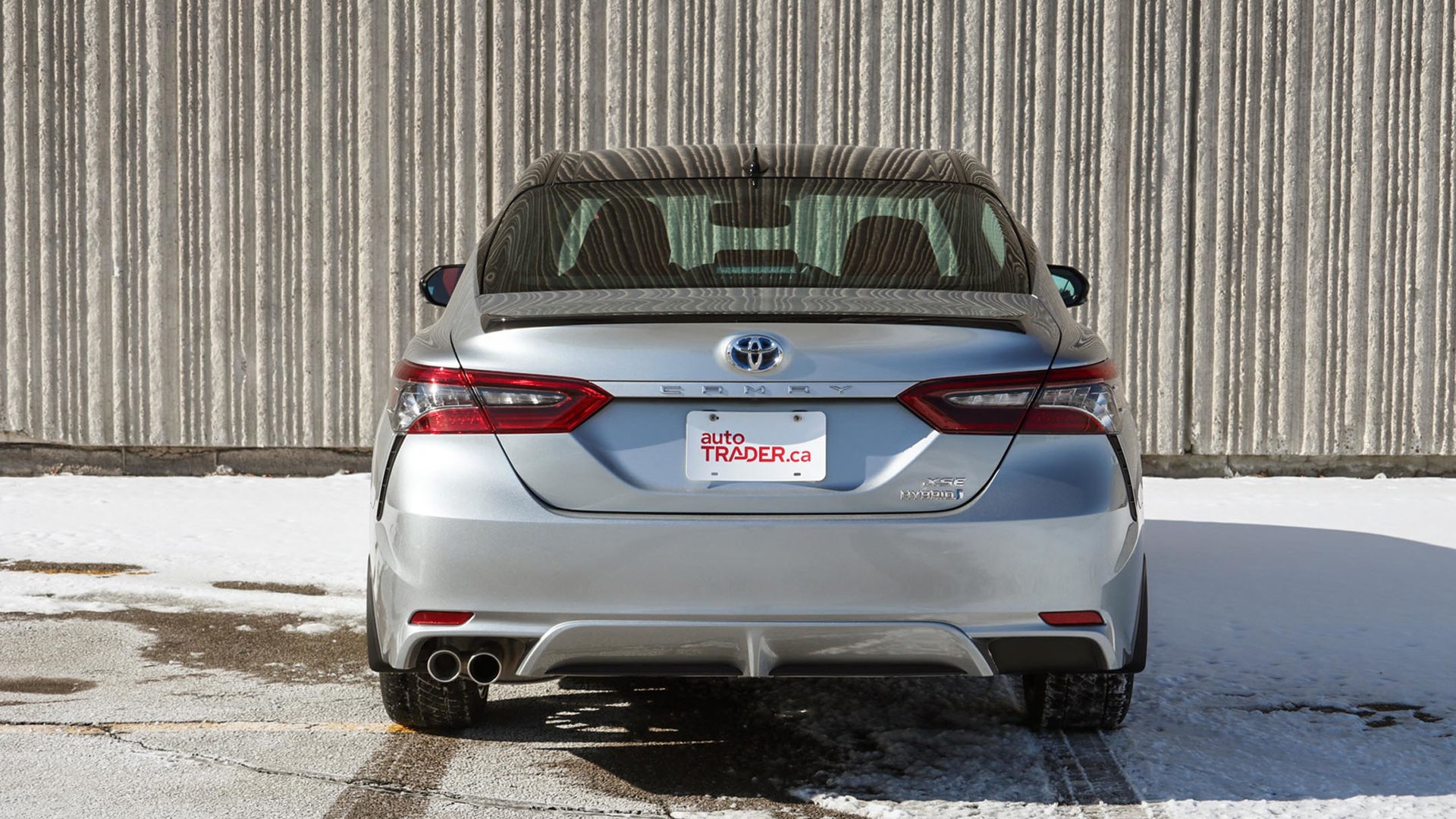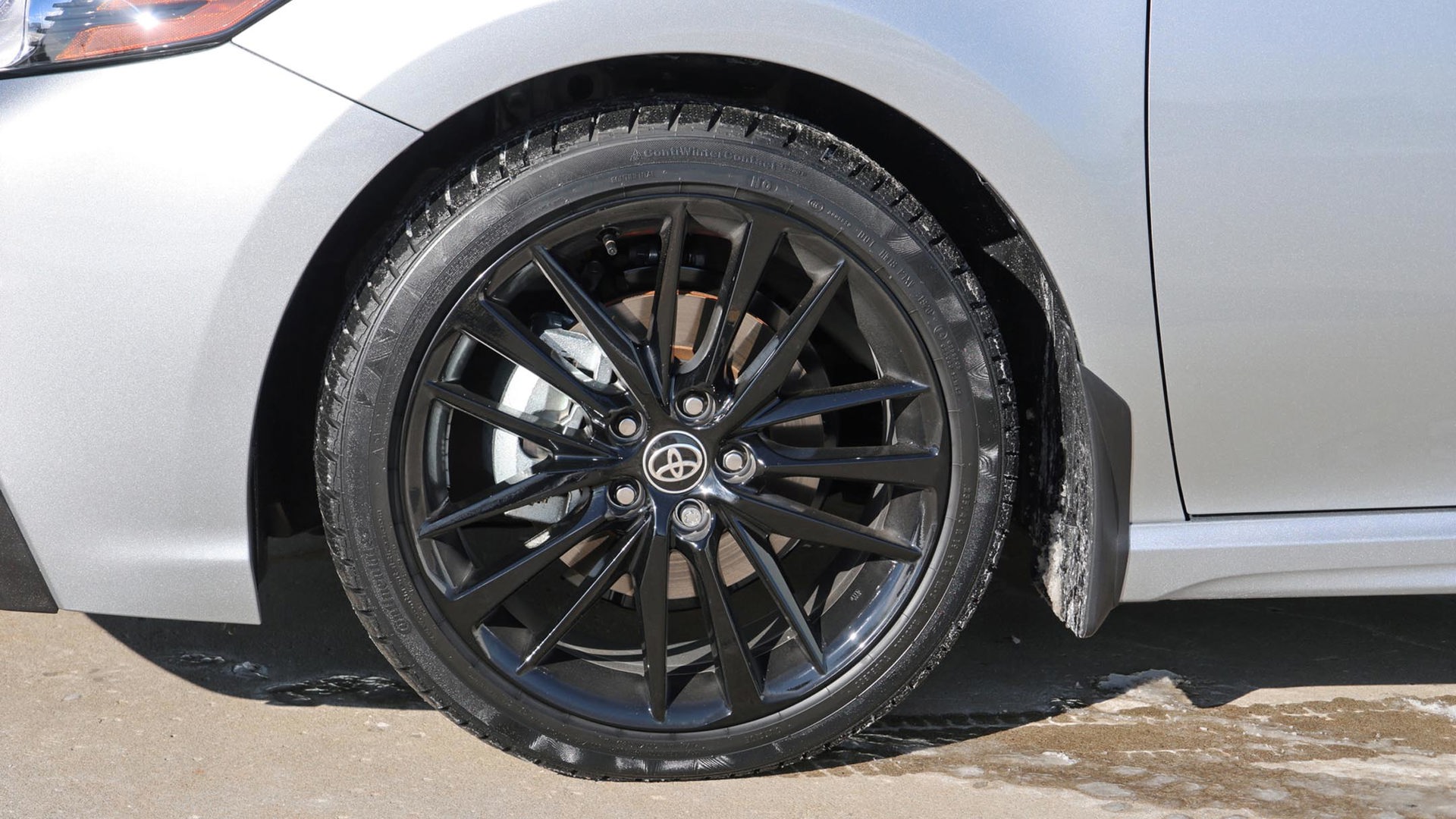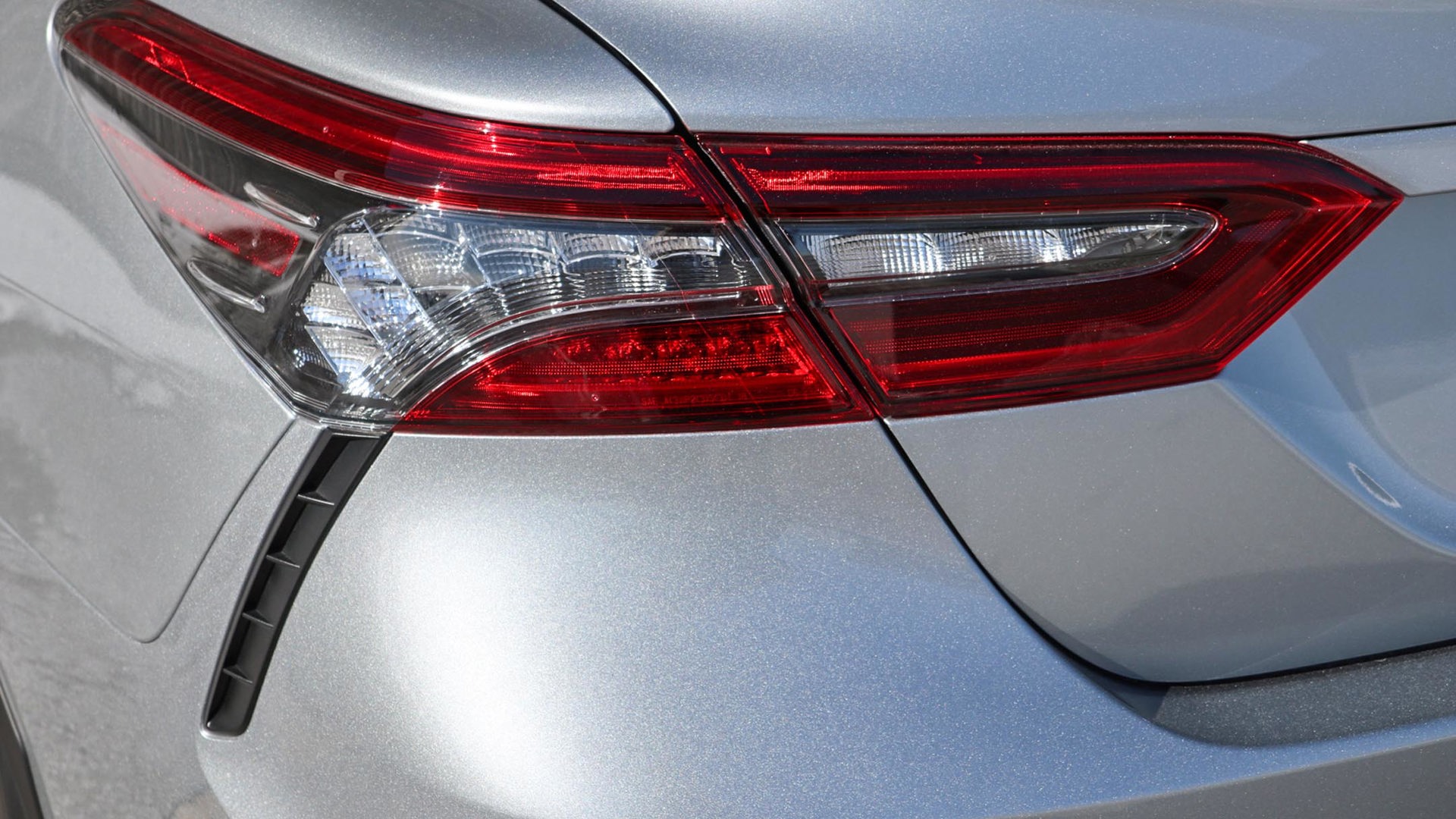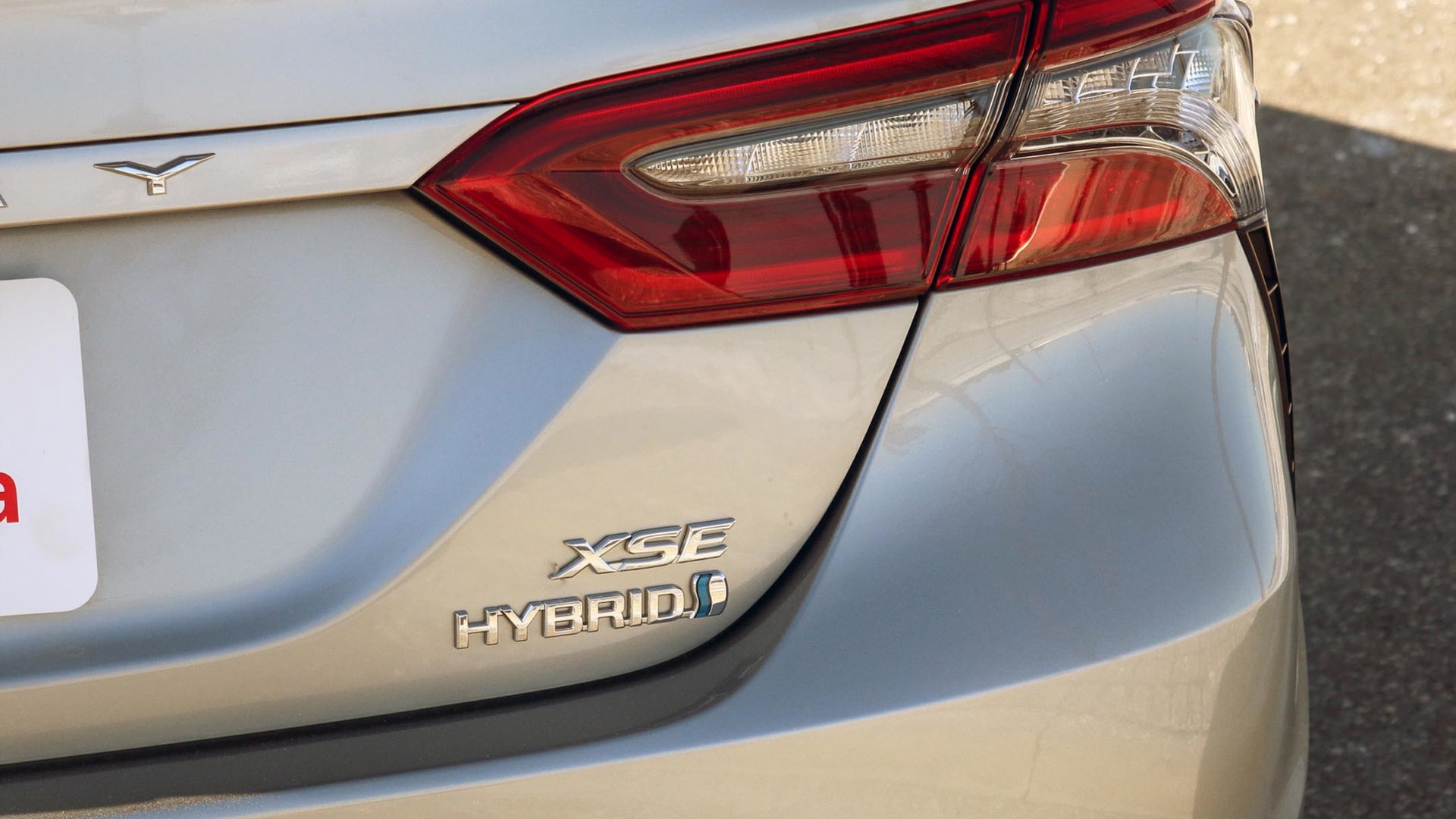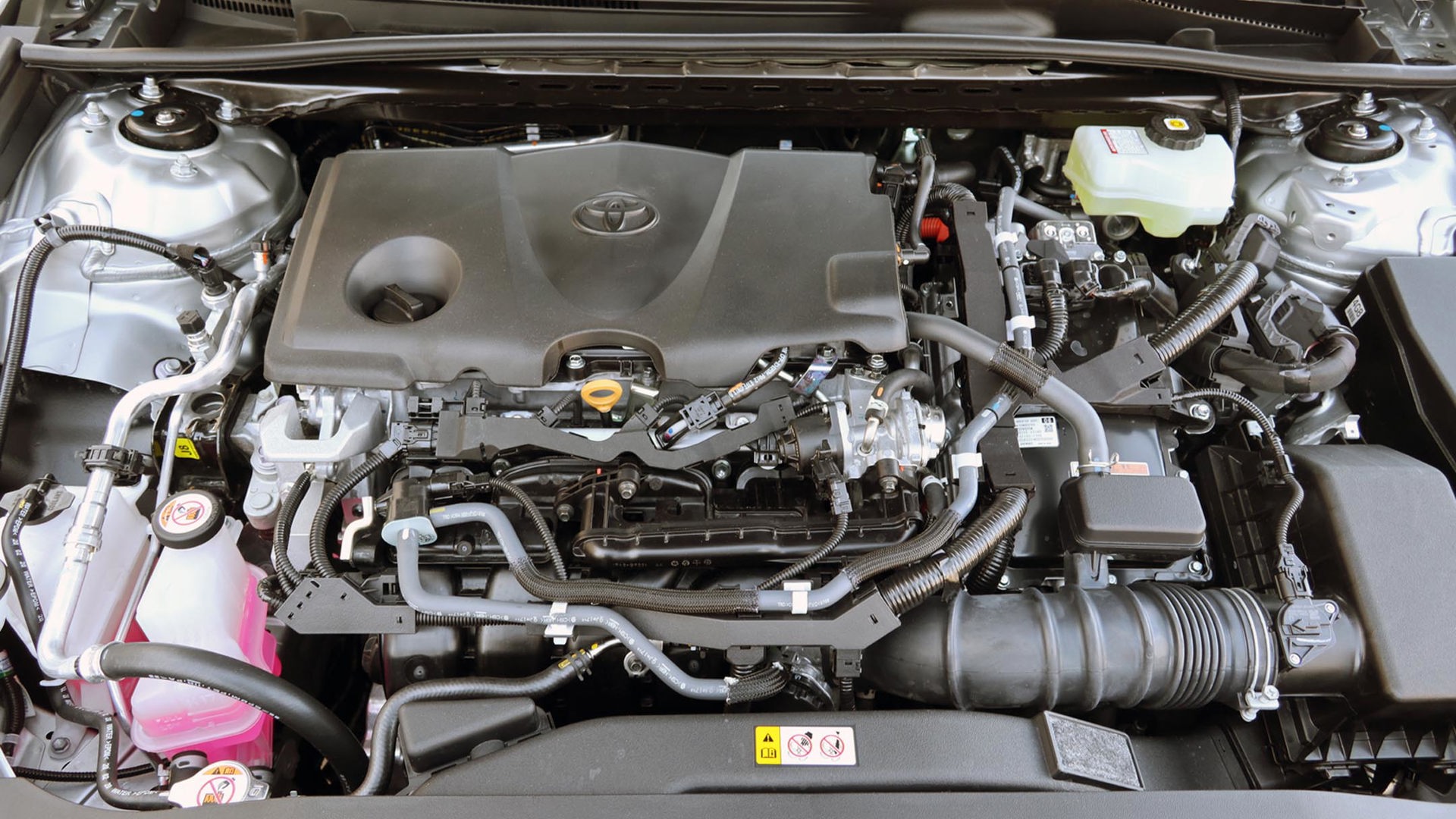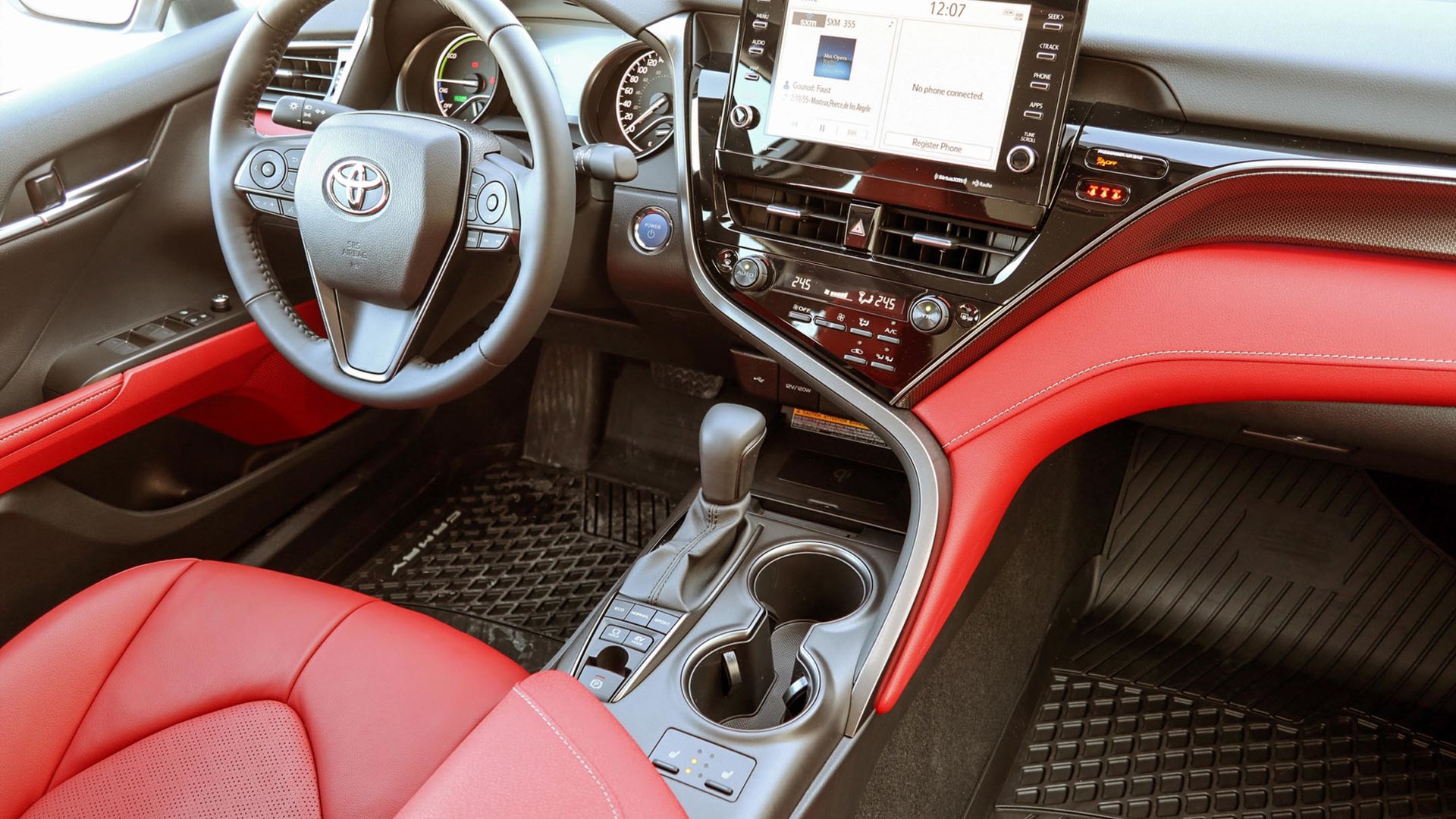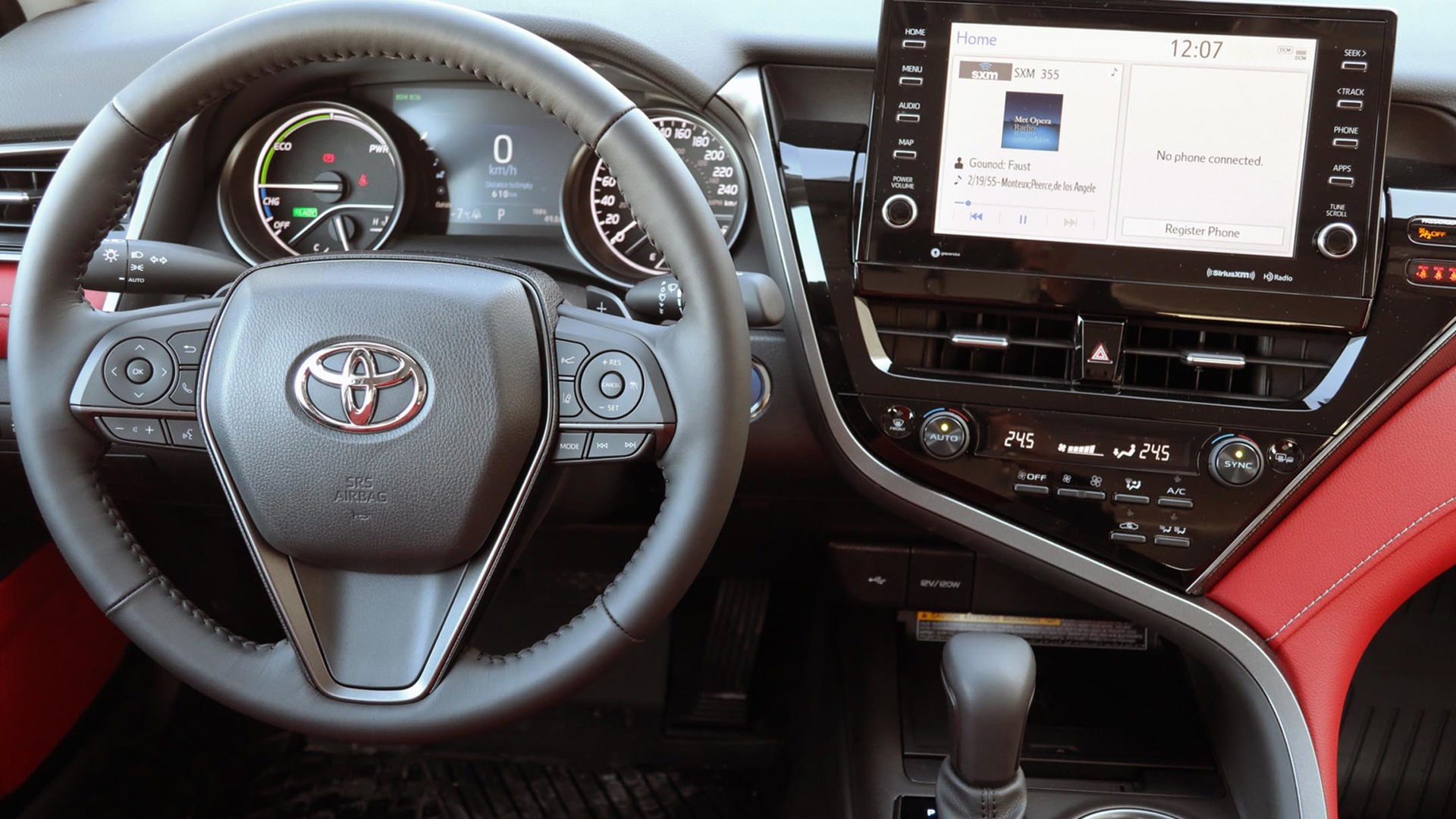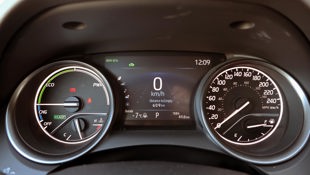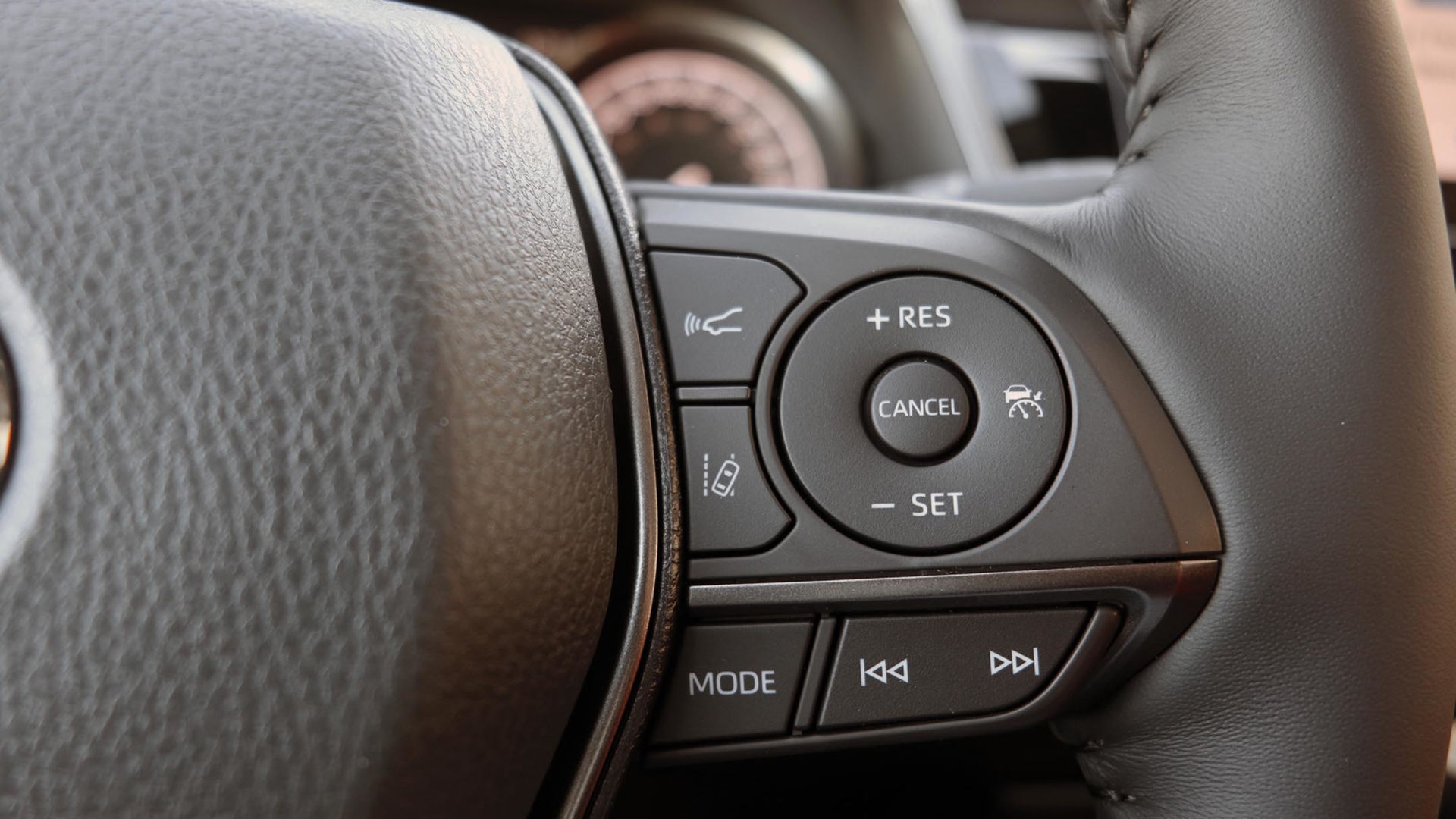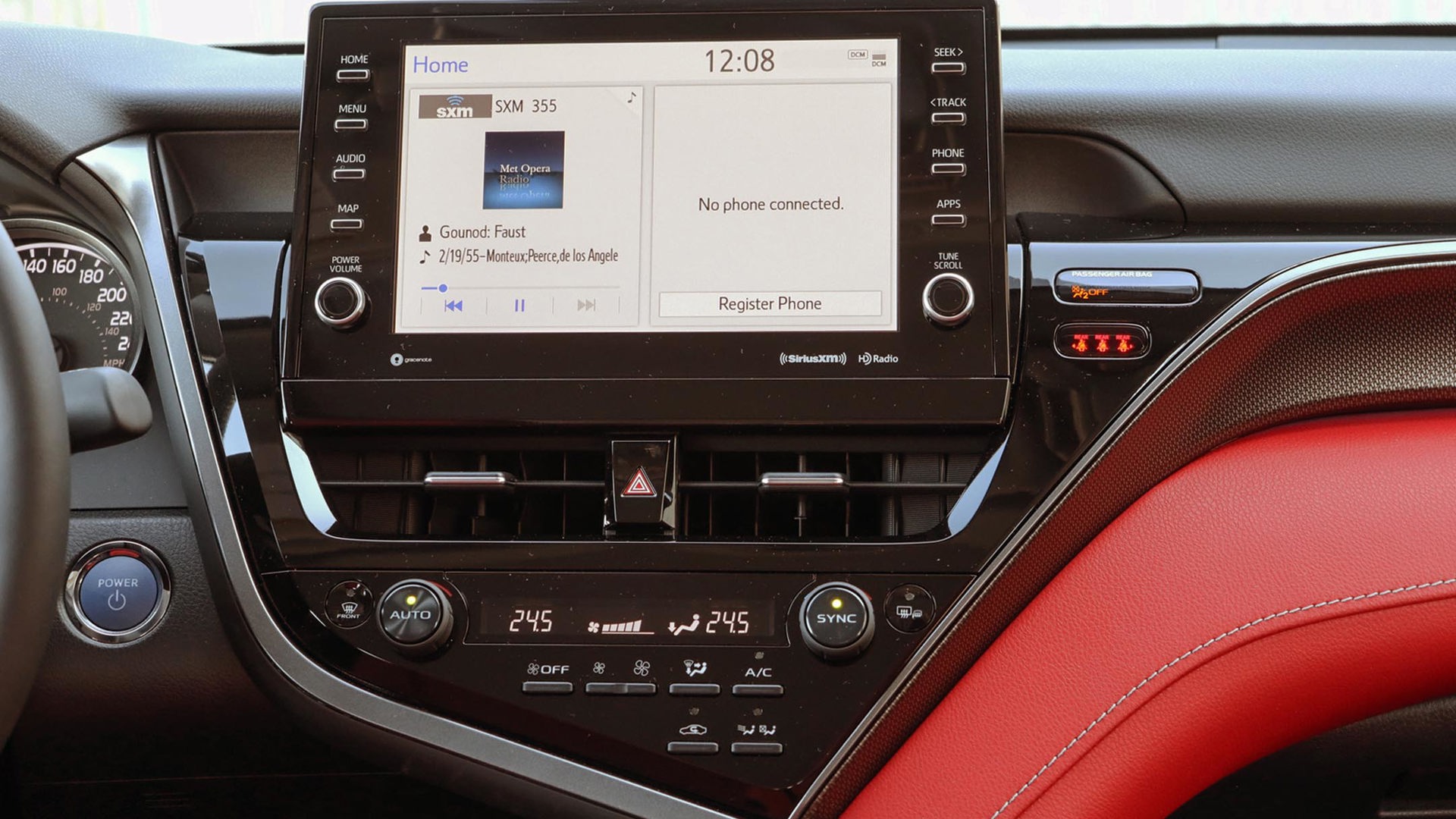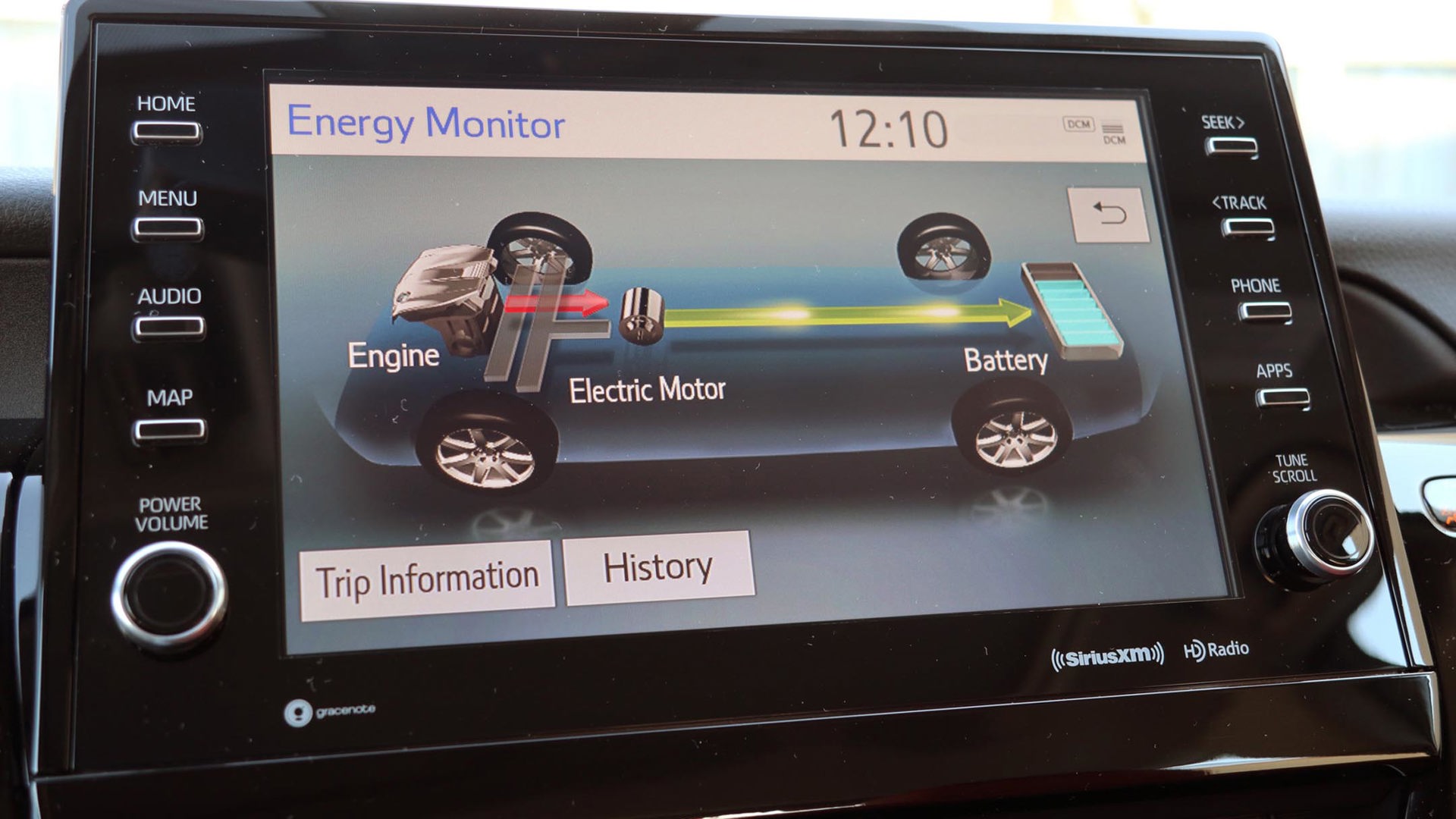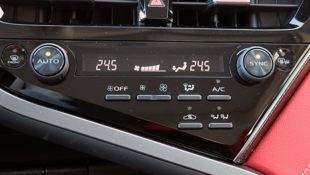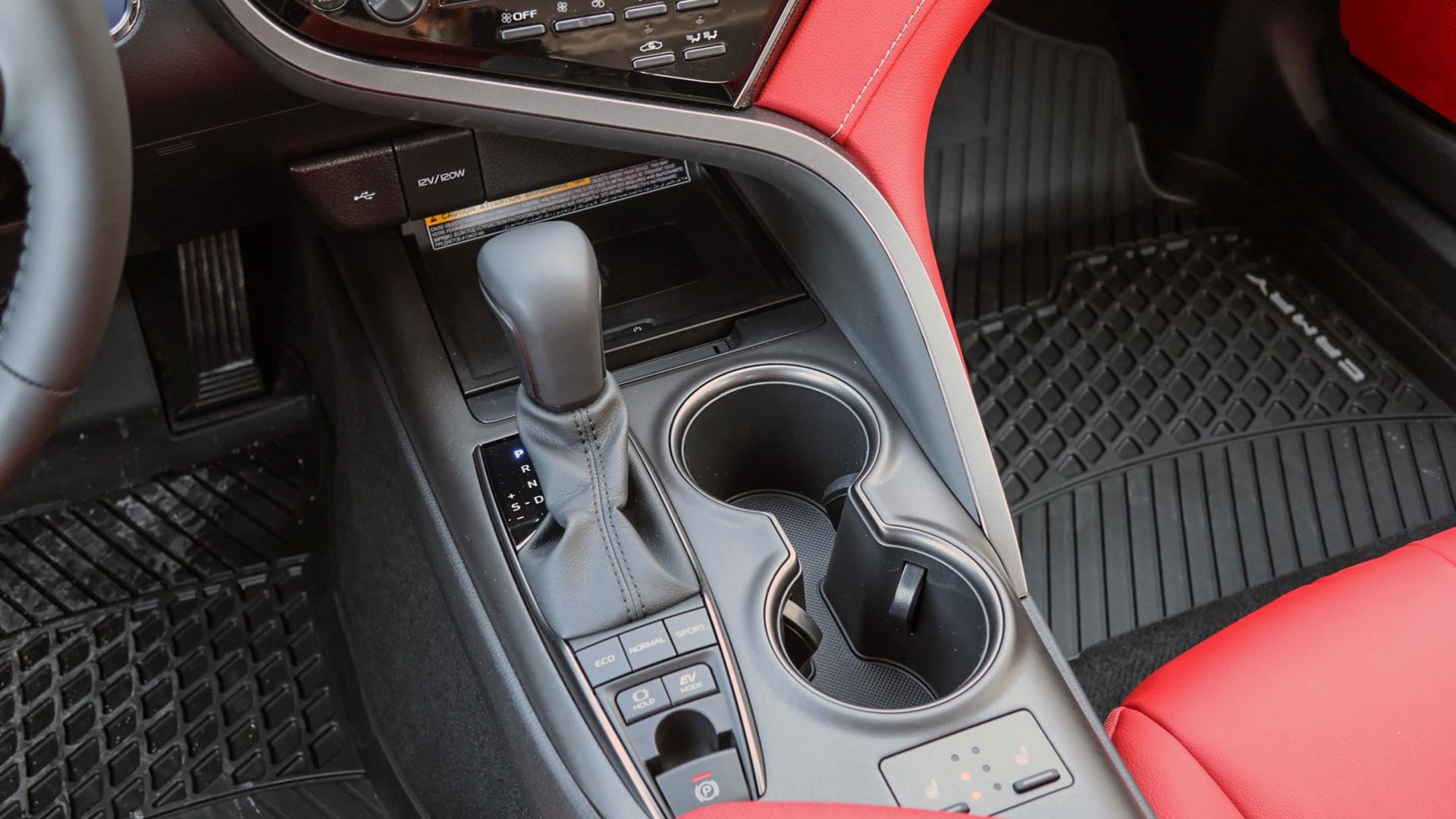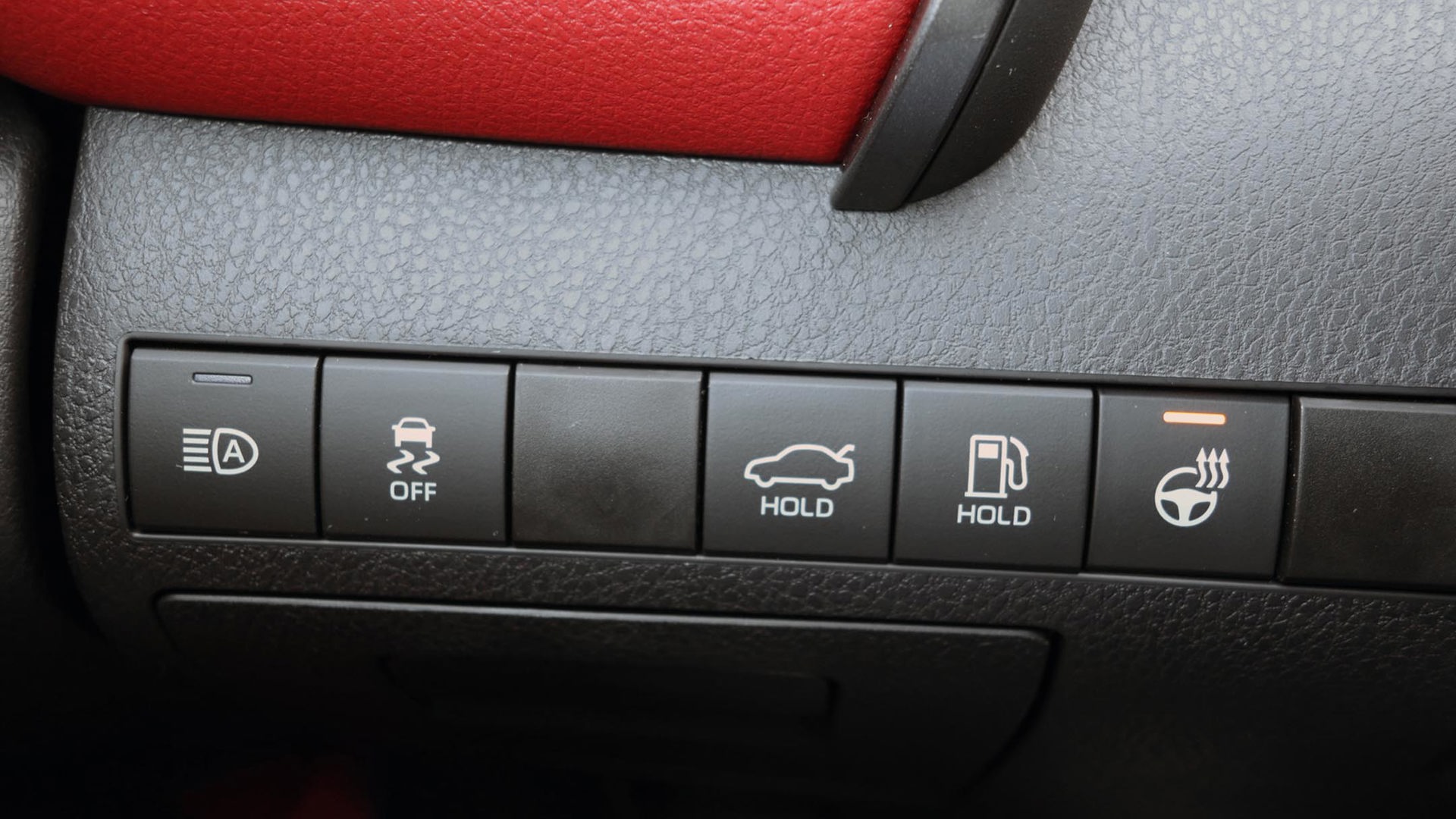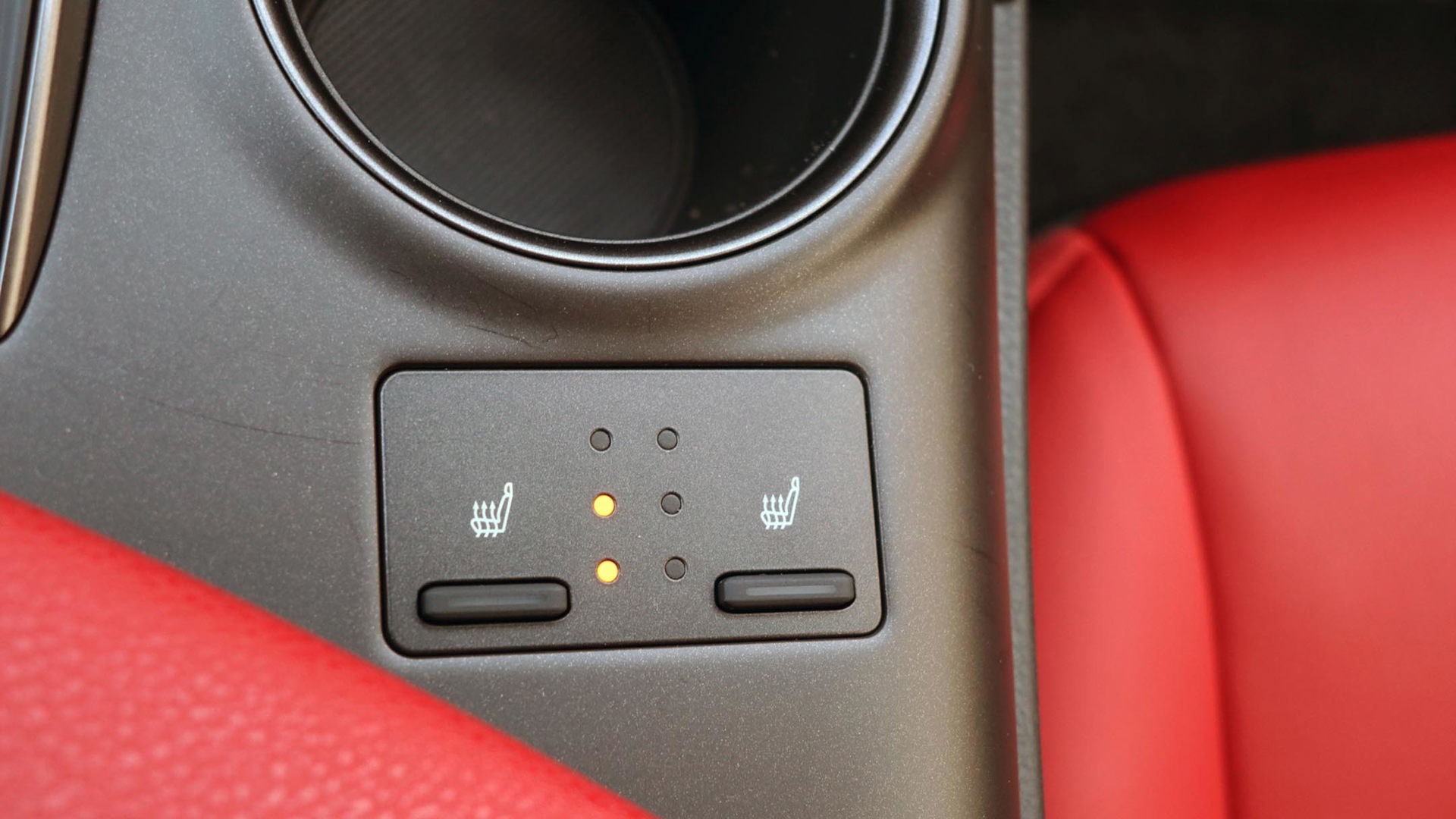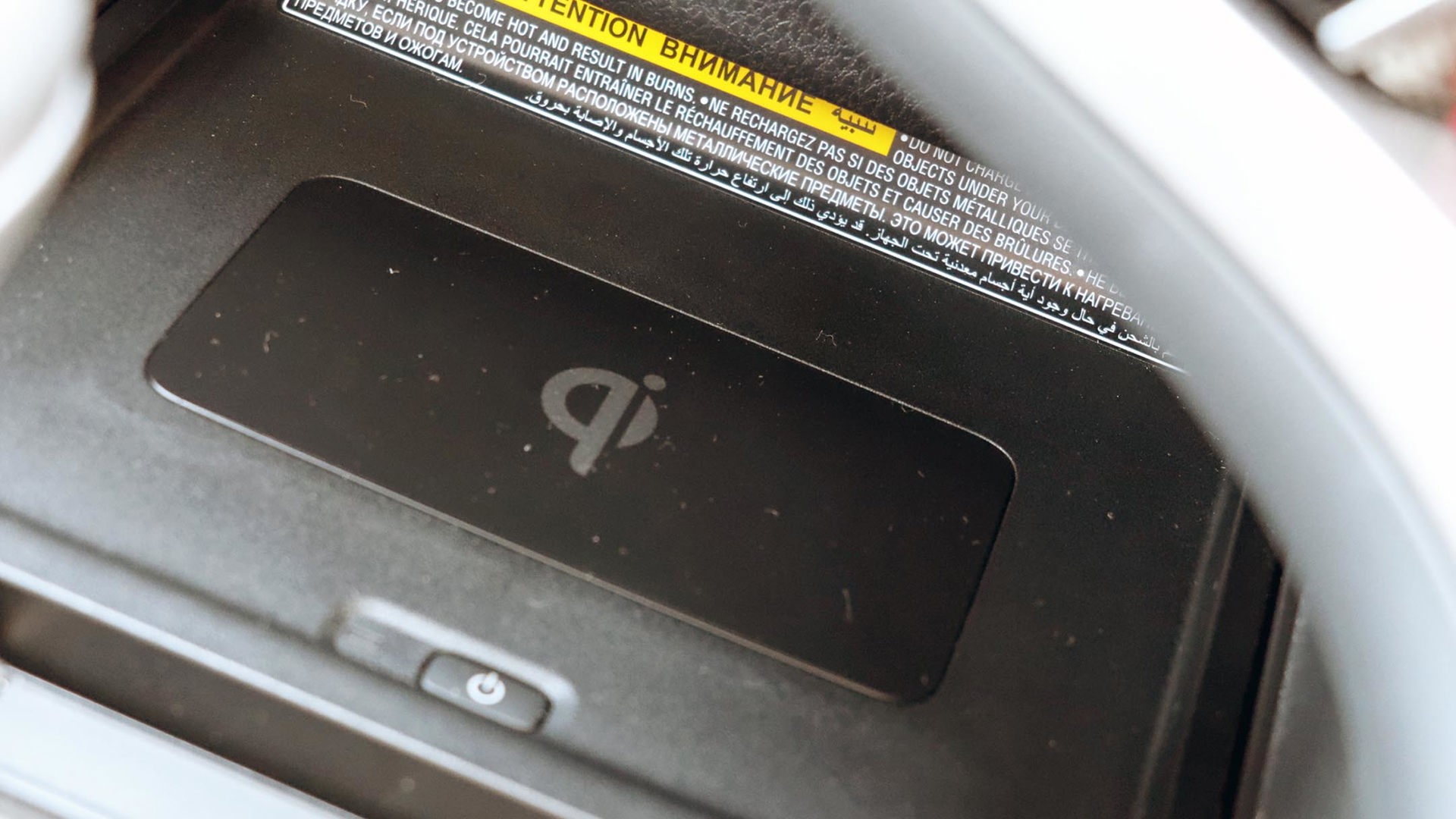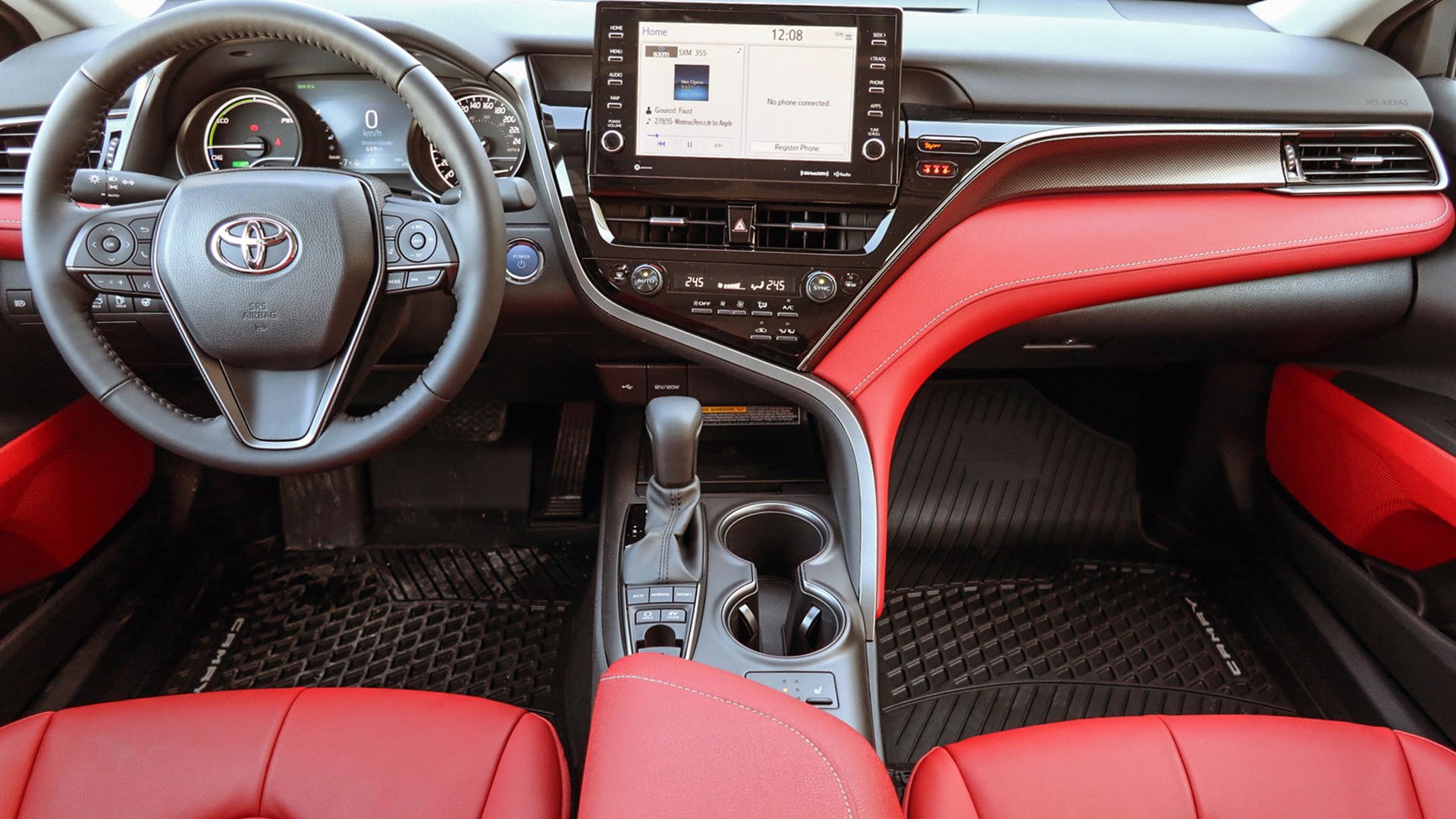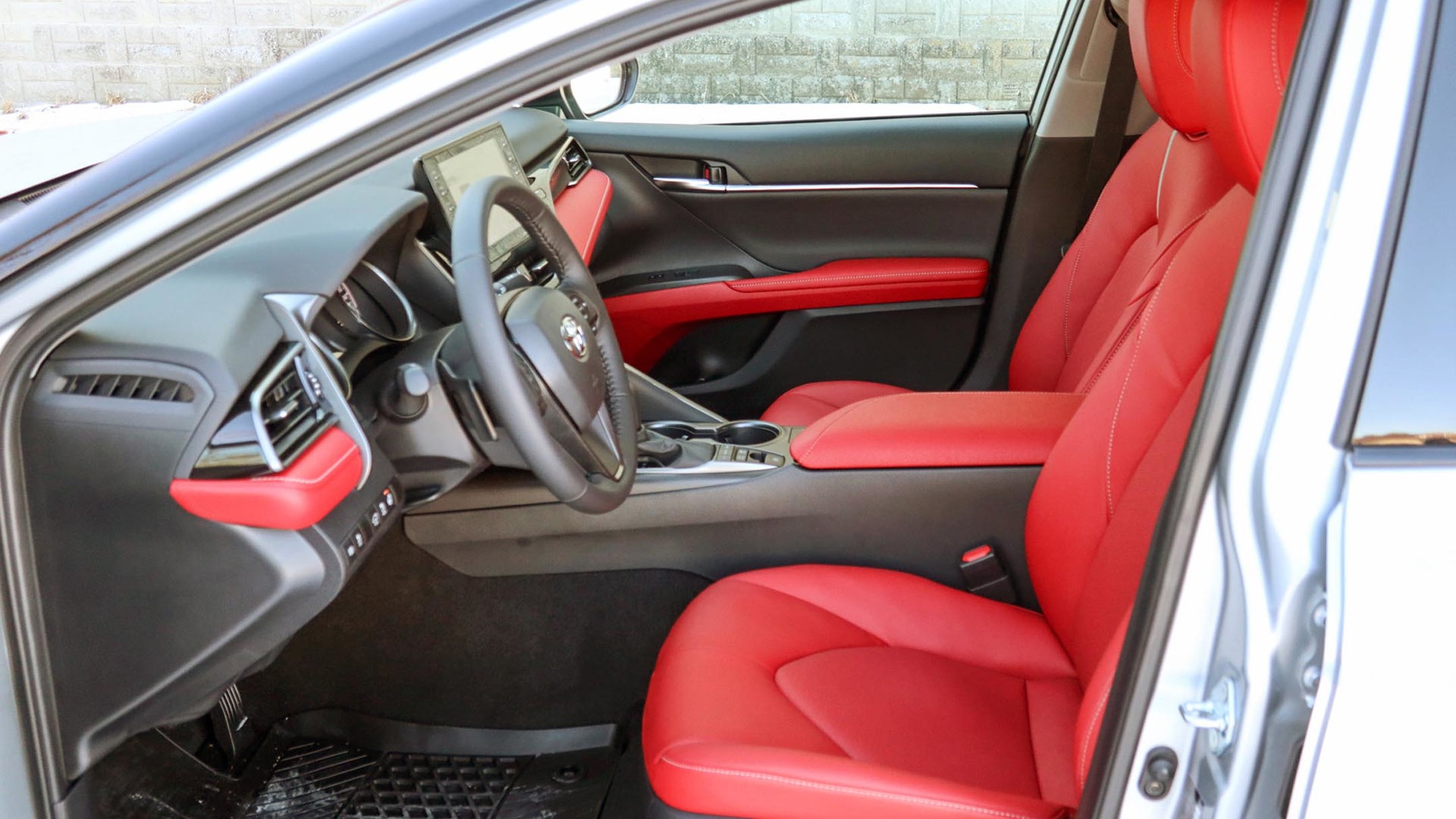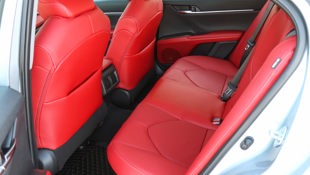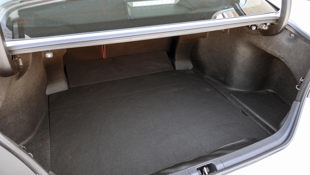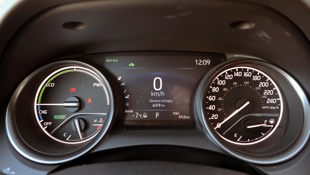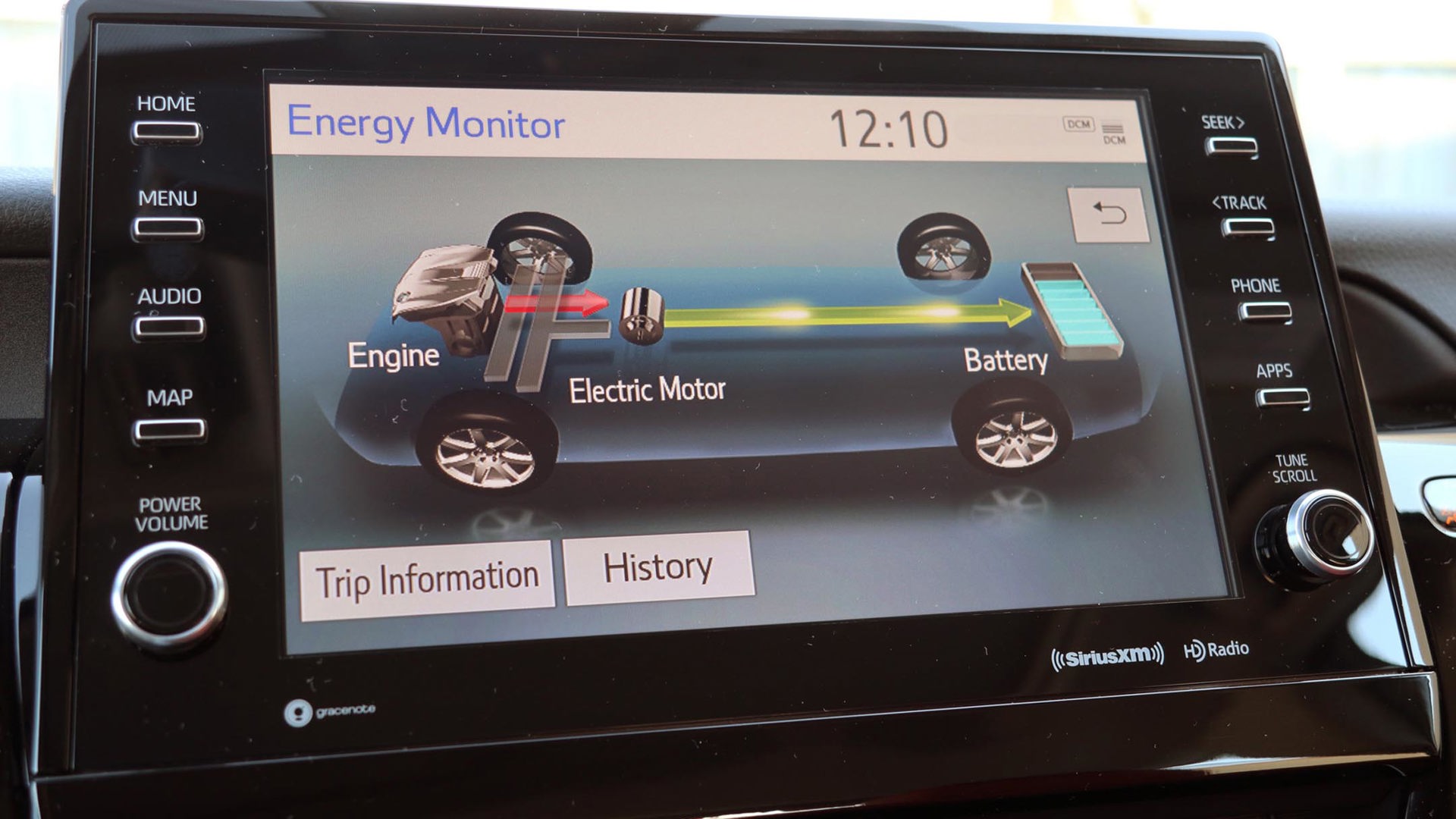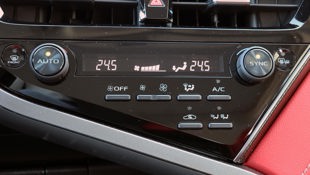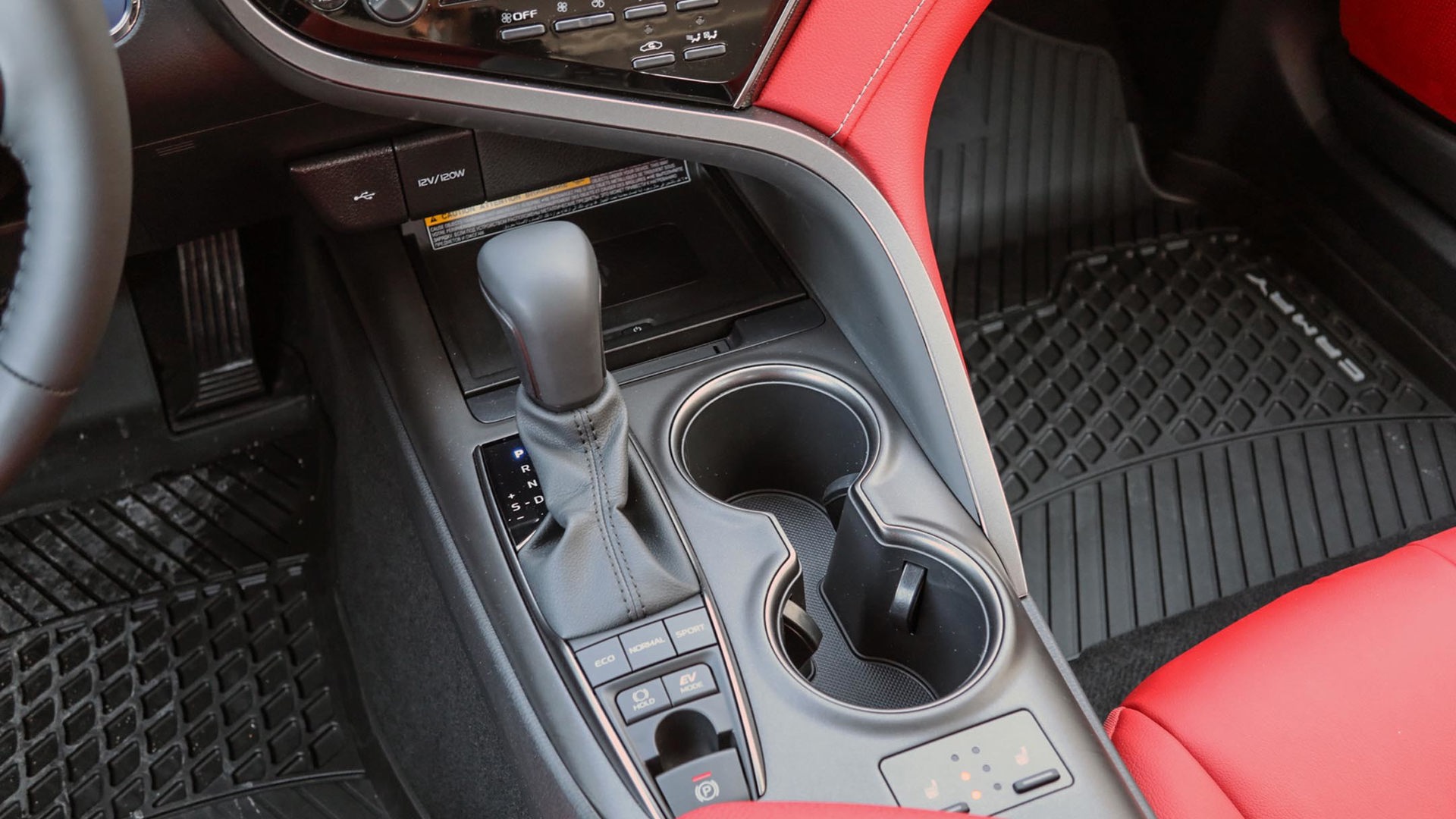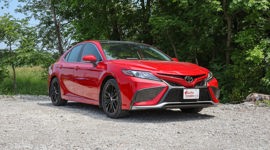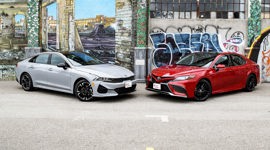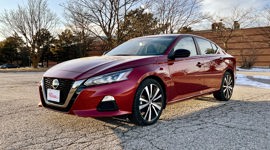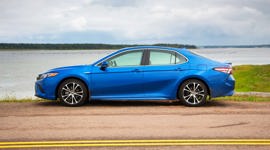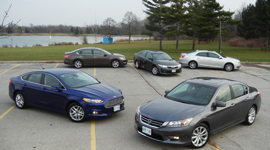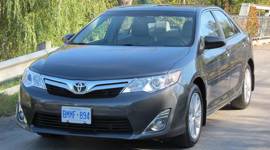 AutoTrader SCORE
AutoTrader SCORE
-
STYLING8/10
-
Safety9/10
-
PRACTICALITY8/10
-
USER-FRIENDLINESS8/10
-
FEATURES8/10
-
POWER8/10
-
COMFORT9/10
-
DRIVING FEEL8/10
-
FUEL ECONOMY9/10
-
VALUE7/10
Automakers don’t really care to talk “conventional” when they’re trying to sell you their latest-and-greatest, but conventionality was one of the best things that could happen to hybrids.
Those ultra-quirky early models like the Toyota Prius and Honda Insight got everyone’s attention, but hybrid adoption really took off when they seemed more like everyday automobiles. That’s certainly the case with the 2021 Toyota Camry Hybrid, which behaves pretty much as any commuter car – and that’s meant as a compliment – save for that secret sauce at the gas pumps.
It comes in four trim levels, ranging from $30,790 to $39,690. I had the new-for-2021 XSE trim, second from the top, at $37,390. Mine also had an optional $540 paint scheme of Celestial Silver Metallic with a contrasting black roof, bringing it to $37,930 before freight and taxes.
Styling: 8/10
My score for styling skews heavily towards the Camry’s interior, because the exterior is a mixed bag. The nose, restyled for 2021, is far too busy and heavy-looking, and while the rear is fine on its own I’ve never understood those twin black stripes that bleed down from the taillights. At first glance, it looks like loose trim pieces dangling back there.
That’s offset by an interior design that’s both unusual and handsome. The metallic-edged, twin-swoosh dash is the eyecatcher, and it cradles a nine-inch floating tablet-style touchscreen that’s new for this year. Leather upholstery is standard in the XSE, and while it’s also available in black, my car’s red cowhide really set off the cabin beautifully.
Safety: 9.5/10
For 2021, the Camry receives the latest version of Toyota Safety Sense, a suite of assist features that includes emergency front braking with pedestrian and bicycle detection, automatic high-beam headlights, adaptive cruise control, lane-keeping assist, and lane centring. Blind-spot monitoring is standard on all hybrids except the base LE, and, of course, all come with the back-up camera mandatory on all new vehicles.
The United States National Highway Traffic Safety Administration (NHTSA) gives the Camry Hybrid the highest five-star rating, while the Insurance Institute for Highway Safety (IIHS) gives the Camry lineup overall its highest Top Safety Pick+ designation, and with the highest Good+ for its child seat tethers’ ease of use.
Features: 8/10
All Camry Hybrid models include such features as dual-zone automatic climate control, heated front seats, power-adjustable driver’s seat, LED head- and taillights, and touchscreen infotainment with Apple CarPlay and Android Auto.
The XSE adds such items as 19-inch wheels, nine-inch touchscreen (up from the base seven inches), wireless charging, power sunroof, tire pressure monitoring system, power passenger seat, and leather interior, along with my new gotta-have-it feature, a heated steering wheel.
User Friendliness: 8.5/10
From ease of getting in and out to operating its functions, the Camry is simple, and simple is good. The fan speed and mode functions are small buttons rather than dials, but there are only so many that could be fitted in there, and if I have to choose, I’d rather have the dials control the temperature, as they do here.
The infotainment system is easy as well, with hard buttons to bring up the menus, and then simple icons once you’re in them. Finally, the heated seats and steering wheel have real buttons, rather than on-screen icons.
Practicality: 8/10
Sedans have lost their market share to SUVs and crossovers, but before you automatically head over to the sport-ute side you should give a car a chance. Visibility is good all around, and when I’m in a sedan, I don’t get that feeling of disconnection with the road that can happen when you’re sitting way up in a sport-ute.
At 428 L, the Camry’s trunk is a bit smaller than some competitors, but with its wide opening and fairly low liftover height, it’s easy to load and unload it.
Comfort: 9/10
Those leather chairs don’t just look good; they’re also well-cushioned, and supportive enough to stay comfortable on longer trips. The heating function has three levels, so you can dial in exactly how warm you want your butt to be.
Rear-seat passengers get decent legroom, provided the front-seat occupants don’t put their chairs all the way back, and headroom is good from front to rear. The ride is smooth, with most bumps soaked up by the suspension before they make their way into the cabin.
Power: 8.5/10
The Camry Hybrid carries a 2.5L four-cylinder that makes 176 hp and 163 lb-ft on its own. It’s mated to the hybrid system’s electric motor, and the two running together make a maximum of 208 hp, while the lithium-ion hybrid battery doesn’t get plugged in. That means no dedicated electric driving range like you get in the Toyota Prius Prime, with the Camry running on gasoline, electricity, or a combination of the two, switching automatically and seamlessly between them depending on driving conditions.
Those power numbers are a good fit and I never felt I needed more, whether taking off from a light, or passing transports at highway speeds. The gas-only Camry offers an all-wheel drive system, but the Camry Hybrid is strictly front-wheel drive.
Driving Feel: 8/10
Overall, the Camry Hybrid is a pleasant vehicle to drive, with a comfortable ride and solid stance. I would like more weight to the steering, which I find too light, and a bit more feel and feedback would be appreciated.
The Camry Hybrid uses an automatic continuously variable transmission (CVT), and while it doesn’t have any gears there are paddle shifters to move up or down a series of simulated shift points. It’s fun for the first little while, but the novelty wears off quickly. I also mostly stayed in the normal driving mode, since eco is too sluggish, and sport isn’t sporty. There’s also an EV button, which prioritizes electric propulsion, but it’s a waste of console space since the hybrid powertrain really does that on its own. It keeps the car on battery-only operation, and Toyota says it’s for emissions-free driving at low speeds, such as in a parking garage. However, it only stays on electric if you’re below a certain low speed and very light on the throttle – and if you’re already there, the system’s going to automatically go on battery anyway, whether you push the button or not.
Fuel Economy: 9/10
Along with reduced emissions, fuel economy is a hybrid’s reason for being. The Camry Hybrid XSE is officially rated at 5.3 L/100 km in the city, 5.0 on the highway, and 5.1 combined. I didn’t do quite that well in a week of very cold weather, managing an overall 6.1 L/100 km. The fuel requirement is regular-grade.
That’s pretty much a match for its midsize competition. The Honda Accord Hybrid gets a combined 5.0 L/100 km, with its Sport variant at 5.5 L/100 km, while the Hyundai Sonata Hybrid chimes in at 5.1 L/100 km. Summertime testing of the top Camry Hybrid XLE landed right around 5.3 L/100 km.
Value: 7.5/10
Against its midsize hybrid sedan competitors, the Camry offers the most choice with four trim levels, including my $37,390 tester. The Sonata Hybrid comes only in a single Ultimate trim, at $40,199 before freight and fees. For $2,809 more than my tester, you get 193 combined hp to my car’s 208 hp, along with heated rear seats, driver’s side memory, and head-up display missing on mine.
The Honda Accord is the price winner in this category. It starts at $35,805, or $1,585 less than my tester before fees and taxes, and with most of its features and 212 combined hp. You can also move up to the Touring, which adds navigation, head-up display, heated rear seats, and ventilated front seats missing on mine, but it’s $5,115 more.
The Verdict
The best way to describe the Camry Hybrid is that it pretty much does everything right. It’s roomy, it’s comfortable, and you get that hybrid benefit of fuel economy and lower emissions. It’s a conventional car with a little extra, and in this segment, that’s exactly what it needs to be.
| Engine Displacement | 2.5L |
|---|---|
| Engine Cylinders | I4 |
| Peak Horsepower | 208 net hp |
| Peak Torque | N/A |
| Fuel Economy | 5.3 / 5.0 / 5.1 L/100 km cty/hwy/cmb |
| Cargo Space | 428 L |
| Model Tested | 2021 Toyota Camry Hybrid XSE |
| Base Price | $37,390 |
| A/C Tax | $100 |
| Destination Fee | $1,770 |
| Price as Tested | $39,800 |
|
Optional Equipment
$540 – Celestial Silver Metallic w/Black Roof, $540
|
|
